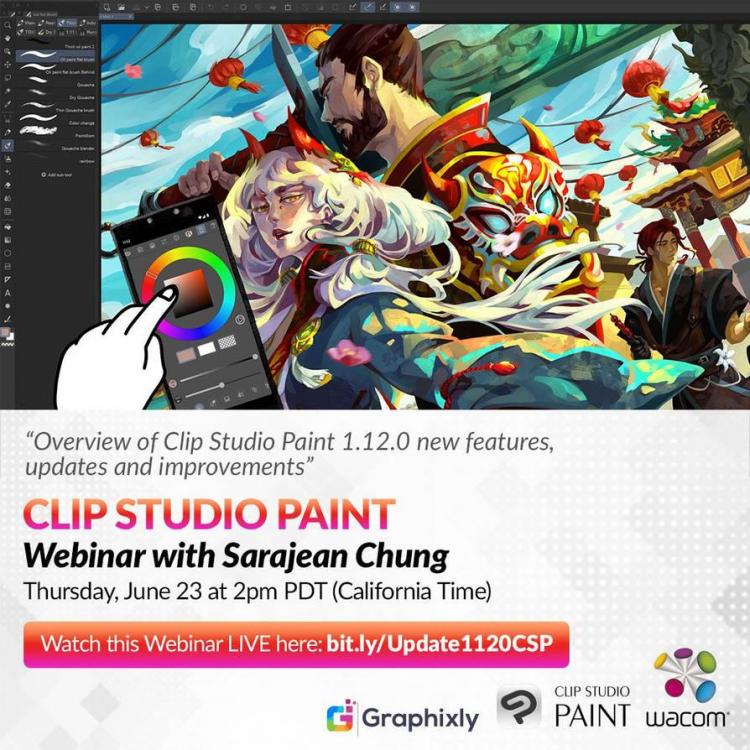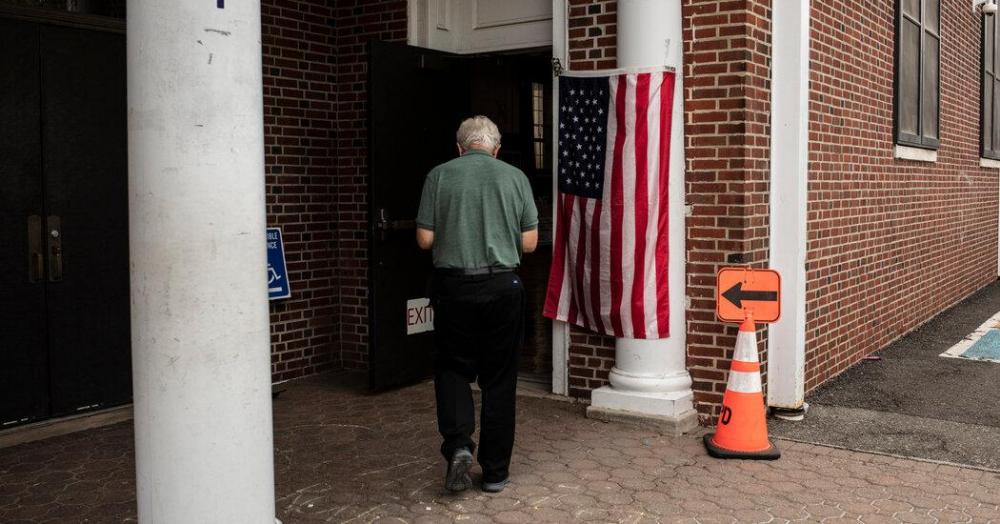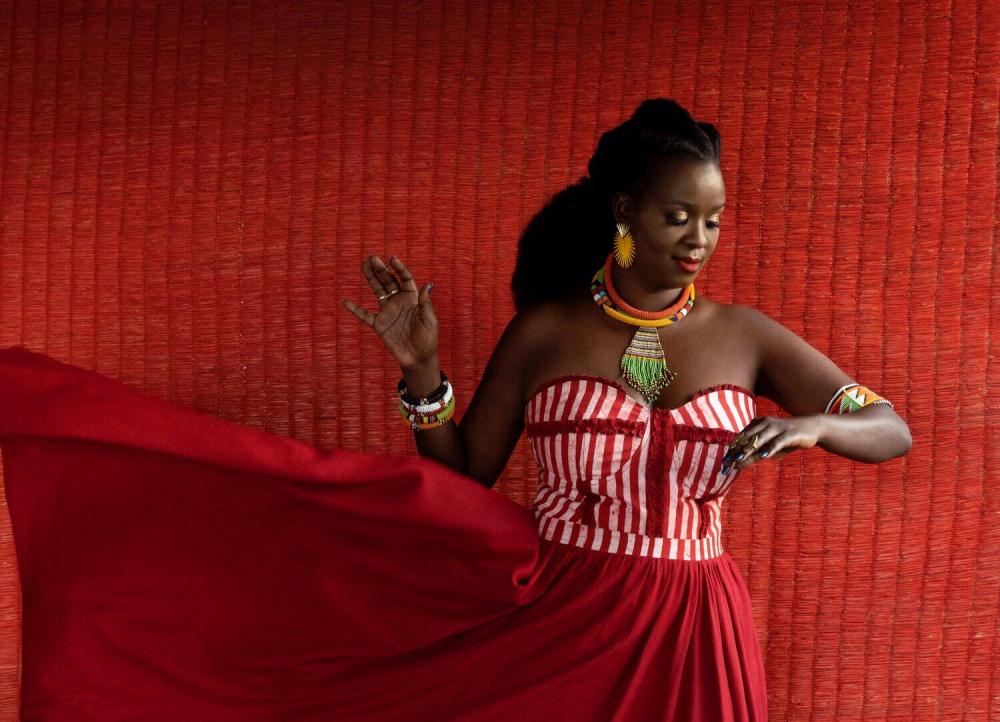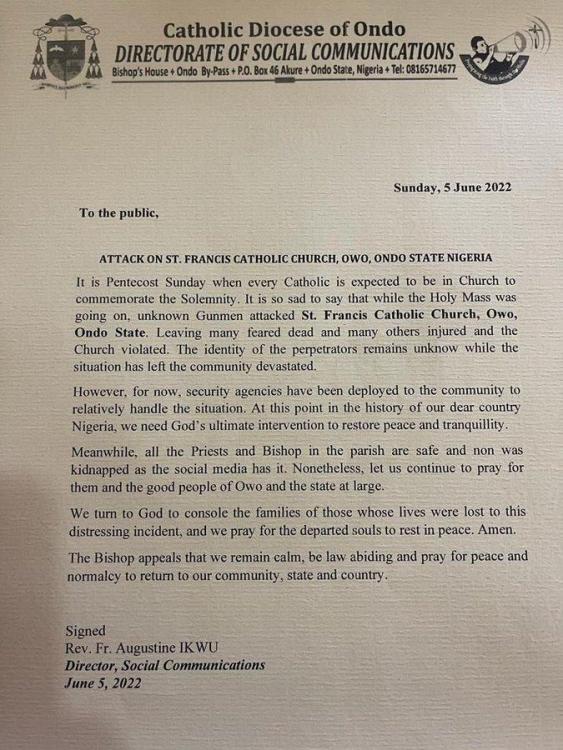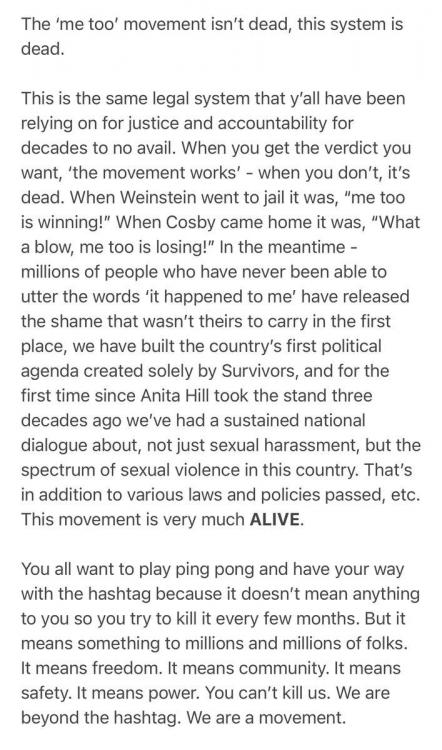-
Posts
2,407 -
Joined
-
Last visited
-
Days Won
91
Content Type
Profiles
Forums
Blogs
Events
Status Updates posted by richardmurray
-
Original comment
Pioneer1 after reading greg's comment, it seems his solution is in two parts: 1 every black woman must be married 2 every black man must be a loving financially able partner.
The problem is, the assumptions.
1. that a fiscally poor or unemployed child or adult from a happy home or part of a happy home will not roam the streets or commit illegalities or commit crimes for profit.
2. that unmarried parents are by default bad parents. That is another false assumption.
IN AMENDMENT
In my view, he offers solutions he thinks will work but they are flawed for the scope of the problems is beyond the solutions he offers.
PEople forget many black people or people in the usa in general moonshined, not because they came from broken homes or bad homes or unpleasant homes but for money. Black people from blues players to migrant farmers , didn't try hustles, try illegalities or crimes cause of some learned home traits. this was their financial reality coming to bear. HAttie mcdaniel didn't want to be a maid in real life. many black people who don't want jobs that are to be blunt, going no where, but don't have a legal financial path use others, and in the world of illegality is always crime.
And I know everyone knows the following or before, but I must say, people forget, the concept behind social welfare programs isn't to be a constant. The idea behind them is that the private will financially grow in time and absorb people in the welfare state. I think many people in the world forget the point of the welfare state isn't to be a constant in a person's life but to be a pillow on the way down so one doesn't commit illegalities in fiscal desperation but also can wait for the private sector to get better. The problem is, all industries or firms have ups and down and some of them have deep downs where they are not recovering. The problem in the usa from a labor perspective is simple, the usa has been losing favorable pay jobs for decades and hasn't replaced them. Yes, tech jobs exist but tech jobs will never replace what the automotive industry was able to provide before its heavy mechanization. Tech jobs will never replace what the farming industry before its heavy mechanization was able to provide. Tech in the usa has made human labor not as needed, and thus fewer jobs. Thus the welfare programs role as a buffer to extreme poverty has been vital to the usa in all earnest. I add to the western european governments as well. I hear trucking is getting its turn. that is millions of truckers in humanity are about to join the millions of former farmers/auto workers. It isn't that the welfare state is negative, it is that , it is needed. but the private sector has to bring the workers back in.
-
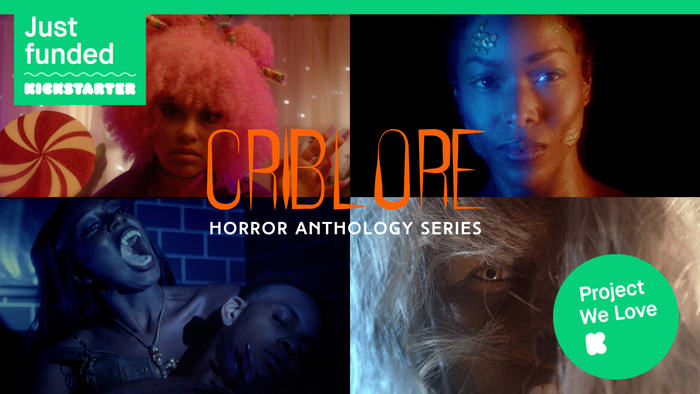
Support "Criblore a horror anthology"- from Moon Ferguson of Filled With Magic < https://www.youtube.com/c/JujuTheWebSeries > productions
https://www.kickstarter.com/projects/moonferguson/criblore-a-horror-anthology
It is only viewable on Black Oak tv - $5 a month. But you don't need to support black oak tv to support the show.
https://beta.blackoak.tv/More work from Filled with Magic
Dark before dawn
Robyn Hood- behind the scenes
Juju the web series
-

I admit, I don't know how she will do in government for she has no experience in government. But I wish her well as vice president of Colombia. Government is complicated and all too often nasty absent the media's view. but I am happy for Francia Márquez, but especially the larger Black community in South America. The reality is, even though Black people from the usa dominate the identity of Black Americans the truth is, from Ecuador to Bahia, is a much larger population of black people than in North America or the Caribbean. My only concern for Black people in South America is their dangerous mirroring of Black North Americans in government affairs. I realize Francia Marquez is in that line but I hope she learns the lessons of Black people in the Caribbean the center of the american continent or Black people in North America... don't be silly. Take this opportunity to lead Black people in colombia and greater south america with wisdom with focus with efficiency with community with collectivity, even while peaceful or nonviolent. Don't mirror the likes of Kamala Harris, the likes of Barrack Obama, the likes of John Lewis, the likes of maxine waters, the likes of corey booker , the likes of eric adams, the likes adrienne adams, the likes of Clarence Thomas, the likes of Colin Powell, the likes of condoleeza rice, please don't mirror the likes of all the Black charlatans in government in North America or elsewhere like Nelson Mandela in South Africa. Think on Black people , plan for Black people, like Winnie Mandela, like Malcolm X, like Jean Jacques Dessalines, like Adam Clayton Powell jr, like Shirley Chisholm.

Gustavo Petro is Colombia's first leftist leader
Gustavo Petro, a former rebel and a longtime legislator, won Colombia's presidential election Sunday, galvanizing voters frustrated by decades of poverty and inequality under conservative leaders
BY JULIE TURKEWITZBOGOTÁ, Colombia — For the first time, Colombia will have a leftist president. Gustavo Petro, a former rebel and a longtime legislator, won Colombia’s presidential election Sunday, galvanizing voters frustrated by decades of poverty and inequality under conservative leaders, with promises to expand social programs, tax the wealthy and move away from an economy he has called overly reliant on fossil fuels.
His victory sets the third-largest nation in Latin America on a sharply uncertain path, just as it faces rising poverty and violence that have sent record numbers of Colombians to the United States border; high levels of deforestation in the Colombian am*zon, a key buffer against climate change; and a growing distrust of key democratic institutions, which has become a trend in the region.
Petro, 62, received more than 50% of the vote, with more than 99% counted Sunday evening. His opponent, Rodolfo Hernández, a construction magnate who had energized the country with a scorched-earth anti-corruption platform, won just over 47%.
Shortly after the vote, Hernández conceded to Petro.
“Colombians, today the majority of citizens have chosen the other candidate,” Hernández said. “As I said during the campaign, I accept the results of this election.”
Petro took the stage Sunday night flanked by his vice-presidential pick, Francia Márquez, and three of Petro’s children. The packed stadium went wild, with people standing on chairs and holding phones aloft.
“This story that we are writing today is a new story for Colombia, for Latin America, for the world,” Petro said. “We are not going to betray this electorate.”
He pledged to govern with what he has called “the politics of love,” based on hope, dialogue and understanding.
Just over 58% of Colombia’s 39 million voters turned out to cast a ballot, according to official figures.
The victory means that Márquez, an environmental activist who rose from poverty to become a prominent advocate for social justice, will become the country’s first Black vice president.
Petro and Márquez’s victory reflects an anti-establishment fervor that has spread across Latin America, exacerbated by the pandemic and other long-standing issues, including a lack of opportunity.
“The entire country is begging for change,” said Fernando Posada, a Colombian political scientist, “and that is absolutely clear.”
In April, Costa Ricans elected to the presidency of Rodrigo Chaves, a former World Bank official and political outsider, who took advantage of widespread discontent with the incumbent party. Last year, Chile, Peru and Honduras voted for leftist leaders running against candidates on the right, extending a significant, multiyear shift across Latin America.
As a candidate, Petro had energized a generation that is the most educated in Colombian history, but is also dealing with 10% annual inflation, a 20% youth unemployment rate and a 40% poverty rate. His rallies were often full of young people, many of whom said they feel betrayed by decades of leaders who had made grand promises but delivered little.
“We’re not satisfied with the mediocrity of past generations,” said Larry Rico, 23, a Petro voter at a polling station in Ciudad Bolívar, a poor neighborhood in Bogotá, the capital.
Petro’s win is all the more significant because of the country’s history. For decades, the government fought a brutal leftist insurgency known as the Revolutionary Armed Forces of Colombia, or FARC, with the stigma from the conflict making it difficult for a legitimate left to flourish.
But the FARC signed a peace deal with the government in 2016, laying down their arms and opening space for a broader political discourse.
Petro had been part of a different rebel group, called the M-19, which demobilized in 1990 and became a political party that helped rewrite the country’s constitution. Eventually, Petro became a forceful leader in the country’s opposition, known for denouncing human rights abuses and corruption.
On Sunday, in a wealthy part of Bogotá, Francisco Ortiz, 67, a television director, said he had also voted for Petro.
“It’s been a long time since we had an opportunity like this for change,” he said. “If things will get better, I don’t know. But if we stick with the same, we already know what we’re going to get.”
The win could also test the United States’ relationship with its strongest ally in Latin America. Traditionally, Colombia has formed the cornerstone of Washington’s policy in the region.
But Petro has criticized what he calls the United States’ failed approach to the drug war, saying it has focused too much on eradication of the coca crop, the base product in cocaine, and not enough on rural development and other measures.
Petro has said that he embraces some form of drug legalization, that he will renegotiate an existing trade deal with the United States to better benefit Colombians and that he will restore relations with the authoritarian government of president Nicolás Maduro of Venezuela, all of which could create conflict with the United States.
About 2 million Venezuelan migrants have fled to Colombia in recent years amid an economic, political and humanitarian crisis.
Petro believes the economic system is broken, overly reliant on oil export and a flourishing and illegal cocaine business that he said has made the rich richer and poor poorer. He is calling for a halt to all new oil exploration, and a shift to developing other industries.
He has also said he will introduce guaranteed work with a basic income, move the country to a publicly controlled health system and increase access to higher education, in part by raising taxes on the rich.
“What we have today is the result of what I call ‘the depletion of the model,’ ” Petro said in the interview this year, referring to the current economic system. “The end result is a brutal poverty.”
His ambitious economic plan has, however, raised concerns. One former finance minister called his energy plan “economic suicide.”
Petro's critics, including former allies, have accused him of arrogance that leads him to ignore advisers and struggle to build consensus. When he takes office in August, he will face a deeply polarized society where polls show growing distrust in almost all major institutions.
He has vowed to serve as the president of all Colombians, not just those who voted for him.
On Sunday, at a high school-turned-polling station in Bogotá, Ingrid Forrero, 31, said she saw a generational divide in her community, with young people supporting Petro and older generations in favor of Hernández.
Her own family calls her the “little rebel” because of her support for Petro, whom she said she favors because of his policies on education and income inequality.
“The youth is more inclined toward revolution,” she said, “toward the left, toward a change.”
©2019 New York Times News Service
https://www.forbesindia.com/article/news/gustavo-petro-is-colombias-first-leftist-leader/77421/1
IN AMENDMENT
Odd how I read this in the new york times, but the exact article is elsewhere online. why is the times online article user blocked. I guess they are making money off of subscribing and the delay from their website to the larger web
-
I wonder how many Black women have reached orgasm before 30 while interacting with a black man. The only way is to ask all black women and no one has done that for any question. all polls are merely averages. But I bet most black women have never reached an orgasm in their entire life time side any man and that includes sadly, my fellow Black men.
The article below deals with a film that is a fiction about a woman on a quest to have an orgasm who never did before and is a mother of adult children and the wife of a deceased man.
But I think the topic is true. Many of my fellow males, including me, can be insensitive to women in intimate scenarios and that leads to women not being pleased. I know for sure, through offline talks that many men, not all but many, believe all every woman needs is a thick penis in them to be aroused and that simply is a lie.
But it is a lie that many men have been taught to be truth by other men, especially their elders in their homes.
But I wonder, I think if every black woman can say by her third intimate experience with a black man she had an orgams, regardless of when that will be a nice communal achievement of change.
Emma Thompson and the Challenge of Baring All Onscreen at 63
The actress made the choice to disrobe. Still, she says, it was the most difficult thing she’s ever done in her four-decade career.By Nicole Sperling
June 15, 2022
It’s the shock of white hair you notice first on Emma Thompson, a hue far more chic than anything your average 63-year-old would dare choose but one that doesn’t ignore her age either. It’s accompanied by that big, wide smile and that knowing look, suggesting both a wry wit and a willingness to banter.And yet, Thompson begins our video call by MacGyvering her computer monitor with a piece of paper and some tape so she can’t see herself. “The one thing I can’t bear about Zoom is having to look at my face,” she said. “I’m just going to cover myself up.”
We are here across two computer screens to discuss what is arguably her most revealing role yet. In the new movie “Good Luck to You, Leo Grande,” directed by Sophie Hyde, Thompson is emotionally wrought and physically naked, and not in a lowlight, sexy kind of way.
Thompson plays Nancy, a recently widowed, former religious schoolteacher who has never had an orgasm. At once a devoted wife and a dutiful mother harboring volumes of regret for the life she didn’t live and the dull, needy children she raised, Nancy hires a sex worker — a much younger man played by relative newcomer Daryl McCormack (“Peaky Blinders”) — to bring her the pleasure she’s long craved. The audience gets to follow along as this very relatable woman — she could have been your teacher, your mother, you — who in Thompson’s words “has crossed every boundary she’s ever recognized in her life,” grapples with this monumental act of rebellion.
“Yes, she’s made the most extraordinary decision to do something very unusual, brave and revolutionary,” Thompson said from her office in North London. “Then she makes at least two or three decisions not to do it. But she’s lucky because she has chosen someone who happens to be rather wise and instinctive, with an unusual level of insight into the human condition, and he understands her, what she’s going through, and is able gently to suggest that there might be a reason behind this.”
Thompson met the challenge with what she calls “a healthy terror.” She knew this character at a cellular level — same age, same background, same drive to do the right thing. “Just a little sliver of paper and chance separates me from her,” she quipped.
Yet the role required her to reveal an emotional and physical level of vulnerability she wasn’t accustomed to. (To ready themselves for this intimate, sex-positive two-hander that primarily takes place in a hotel room, Thompson, McCormack and Hyde have said they spent one of their rehearsal days working in the nude.) Despite a four-decade career that has been lauded for both its quality and its irreverence and has earned her two Academy Awards, one for acting (“Howards End”) and one for writing (“Sense and Sensibility”), Thompson has appeared naked on camera only once: in the 1990 comedy “The Tall Guy,” opposite Jeff Goldblum.
She said she wasn’t thin enough to command those types of skin-baring roles, and though for a while she tried conquering the dieting industrial complex, starving herself like all the other young women clamoring for parts on the big screen, soon enough she realized it was “absurd.”
“It’s not fair to say, ‘No, I’m just this shape naturally.’ It’s dishonest and it makes other women feel like [expletive],” she said. “So if you want the world to change, and you want the iconography of the female body to change, then you better be part of the change. You better be different.”
For “Leo Grande,” the choice to disrobe was hers, and though she made it with trepidation, Thompson said she believes “the film would not be the same without it.” Still, the moment she had to stand stark naked in front of a mirror with a serene, accepting look on her face, as the scene called for, was the most difficult thing she’s ever done.
“To be truly honest, I will never ever be happy with my body. It will never happen,” she said. “I was brainwashed too early on. I cannot undo those neural pathways.”
She can, however, talk about sex. Both the absurdities of it and the intricacies of female pleasure. “I can’t just have an orgasm. I need time. I need affection. You can’t just rush to the clitoris and flap at it and hope for the best. That’s not going to work, guys. They think if I touch this little button, she’s going to go off like a Catherine wheel, and it will be marvelous.”
There is a moment in the movie when Nancy and Leo start dancing in the hotel room to “Always Alright” by Alabama Shakes. The two are meeting for a second time — an encounter that comes with a checklist of sexual acts Nancy is determined to plow through (pun intended). The dance is supposed to relieve all her type-A, organized-teacher stress that’s threatening to derail the session. Leo has his arms around her neck, and he’s swaying with his eyes closed when a look crosses Nancy’s face, one of gratitude and wistfulness coupled with a dash of concern.
To the screenwriter, Katy Brand, who acted opposite Thompson in the second “Nanny McPhee” movie and who imagined Thompson as Nancy while writing the first draft, that look is the point of the whole movie.
“It’s just everything,” Brand said. “She feels her lost youth and the sort of organic, natural sexual development she might have had, if she hadn’t met her husband. There is a tingling sense, too, not only of what might have been but what could be from now on.”
Brand is not the first young woman to pen a script specifically for Thompson. Mindy Kaling did it for her on “Late Night,” attesting that she had loved Thompson since she was 11. The writer Jemima Khan told Thompson that she had always wanted the actress to be her mother, so she wrote her a role in the upcoming film “What’s Love Got to Do With It?”
“I think the thing that Emma gives everybody and what she does in person to people, and also via the screen, is that she always somehow feels like she’s on your side,” Brand said. “And I think people really respond to that. She will meet you at a very human level.”
The producer Lindsay Doran has known Thompson for decades. Doran hired her to write “Sense and Sensibility” after watching her short-lived BBC television show “Thompson” that she wrote and starred in. The two collaborated on the “Nanny McPhee” movies, and are working on the musical version, with Thompson handling the book and co-writing the songs with Gary Clark (“Sing Street”).
To the producer, the film is the encapsulation of a writer really understanding her actress.
“It felt to me like Katy knew the instrument, and she knew what the instrument was capable of within a few seconds,” Doran said. “It isn’t just, over here I’m going to be dramatic. And over here, I’m going to be funny, and over here I’m going to be emotional. It can all go over her face so quickly, and you can literally say there’s this feeling, there’s this emotion.”
Reviewing “Leo Grande,” for The New York Times, Lisa Kennedy called Thompson “terrifically agile with the script’s zingers and revelations,” while Harper’s Bazaar said Thompson was “an ageless treasure urgently overdue for her next Oscar nomination.”
The obvious trajectory for a film like this should be an awards circuit jaunt that would probably result in Thompson nabbing her fifth Oscar nomination. But the film, set to debut on Hulu on Friday, will not have a theatrical release in the United States.
Thompson doesn’t mind. “It is a small film with no guns in it, so I don’t know how many people in America would actually want to come see it,” she said with a wink.
That may be true. But more consequently, because of a rule change by the Academy of Motion Picture Arts and Sciences that reverts to prepandemic requirement of a seven-day theatrical release, “Good Luck to You, Leo Grande” is not eligible for Oscar consideration, a reality that the director Sophie Hyde is not pleased with.
“It’s really disappointing,” Hyde said. “I understand the desire to sort of protect cinema, but I also think the world has changed so much. Last year, a streaming film won best picture.” She argued that her film and others on streaming services aren’t made for TV. They are cinematic, she said, adding, “That’s what the academy should be protecting, not what screen it’s on.”
Thompson, for one, seems rather sanguine about the whole matter. “I think that, given the fact that you might have a slightly more puritanical undercurrent to life where you are, that it might be easier for people to share something as intimate as this at home and then be able to turn it off and make themselves a nice cup of really bad tea,” said Thompson, laughing. “None of you Americans can make good tea.”
Nicole Sperling is a media and entertainment reporter, covering Hollywood and the burgeoning streaming business. She joined The New York Times in 2019. She previously worked for Vanity Fair, Entertainment Weekly and The Los Angeles Times. @nicsperling
https://www.nytimes.com/2022/06/15/movies/emma-thompson-good-luck-to-you-leo-grande.html
IN AMENDMENT
Again, the problem with Black people is we talk about finance in such a legal way, White people make money based on whatever it takes, not within a system. and the reality is, black people's leaders in the usa have chosen to lead the legal way for their own agenda , which doesn't help black people en large.
Lavish Money Laundering Schemes Exposed in Canada
Government officials in the province of British Columbia were aware that suspicious money was entering their revenue stream, but took insufficient steps to stop it.By Catherine Porter, Vjosa Isai and Tracy Sherlock
Published June 15, 2022
Updated June 17, 2022
VANCOUVER — Self-professed students were buying multimillion-dollar homes in the Vancouver area, with dubious sources of income, or none at all.A family of modest means transferred at least 114 million Canadian dollars to British Columbia.
Loan sharks cleaned their dirty money by giving garbage bags and hockey bags full of illicit Canadian 20 dollar bills to gamblers who took it onto casino floors.
Those were just some of the findings from a long-awaited report into money laundering in Canada’s western province of British Columbia, which after two years of testimony was finally released by a special commission on Wednesday.
Canada is a “major money laundering country,” with weak law enforcement and gaps in its laws, that put it on a list of countries that included Afghanistan, China and Colombia, according to a 2019 report by the State Department.
Few places in Canada launder as much money as the province of British Columbia, specifically the region around Vancouver, which has one of the country’s biggest underground economies. The province has earned an international reputation as a haven for “snow washing” — a term for money laundering in Canada, according to government officials.
Billions of dollars a year have been laundered there by criminals, using tactics such as gambling in casinos, buying and selling luxury goods and taking out residential mortgages that are paid off in cash installments small enough not to trigger any alarm bells.
British Columbia’s gambling industry is a cash cow for the provincial government. At its height in 2015-2016, gambling generated a record 3.1 billion Canadian dollars in revenue, about one-third of which went to the government and was used to finance hospitals and health care, community organizations and other projects.
The commission was tasked to delve deeply into how bad money laundering in the province had gotten, and whether regulatory organizations, as well as the government itself, had failed to stem it, or even worse, turned a blind eye to it. While the report found no evidence of corruption, some elected officials were aware that suspicious funds from the gambling industry were entering the provincial revenue stream, but took insufficient action to stop it. One official, the minister then responsible for gaming, took no action.
The report, more than 1,800 pages long, lays out the staggering scope of money laundering in the province and sets out more than 100 recommendations for addressing it.
The province should create an anti-money laundering commissioner and a dedicated money laundering investigation and intelligence police unit to address this “corrosive form of criminality,” the report says.
“Money laundering is fundamentally destabilizing to the society and the economy that we all want for the province,” Austin Cullen, the head of the commission and a former British Columbia Supreme Court Justice, told reporters on Wednesday. “Sophisticated money launderers have used British Columbia as a clearing house or a terminus for laundering an astounding amount of dirty money.”
The provincial government announced the inquiry in May 2019 after a series of government-sponsored reports found what the commission called “extraordinary” levels of money laundering in the real estate, casino, horse racing and luxury car sectors, fueled in part by the illegal drug trade.
Books, podcasts and news reports had raised the alarm across the country, accusing gangs in China of importing fentanyl to the Western province, and then laundering the proceeds through casinos and high end real estate, helping to further inflate housing prices in a city already deemed the most expensive for housing in the country.
A 2019 report to the province estimated that in the prior year, up to 5.3 billion Canadian dollars in laundered money flowed through real estate investments in British Columbia, inflating housing prices by as high as 7.5 percent because they were purchased with the proceeds of crime as a way to clean — or legitimize — that money.
The commission, headed by Mr. Cullen, a well-respected judge, has been a constant drum beat across the country throughout the pandemic, hearing from almost 200 witnesses, including a former premier, a government minister accused of ignoring warnings about money laundering in casinos because they offered huge revenue for the government, and police officers alleging their investigations into illicit gambling were shut down for similar political reasons.
Witnesses told the commission how one scheme worked. Rich gamblers from China flew in, wheeling hockey bags stuffed with tens of thousands of Canadian 20 dollar bills to play baccarat at private salons inside Vancouver-area casinos. The money was suspected to come from loan sharks connected to Chinese criminal gangs and drug traffickers. The loan sharks laundered their drug money by lending it to the gamblers, who would in turn repay them with clean money deposited to bank accounts in China or Hong Kong. This became known as the “Vancouver Model.”
Specialized gambling police and lottery investigators raised an alarm but found their investigations shut down or blocked, or even worse, they were fired, the commission heard. The betting limits in casinos were hiked to 100,000 Canadian dollars per hand, allowing even more money to be laundered.
British Columbia’s Attorney General David Eby, who has been campaigning against money laundering for many years, told reporters earlier this month he hoped the report would offer his government a road map for turning the province and Vancouver, “into a model for fighting money laundering instead of a center where it takes place.”
Already, the British Columbia government has taken some steps to combat the problem. It has tightened the rules at casinos, requiring gamblers to declare their source of funds and in 2019, launched a public land ownership registry, requiring certain real estate holders in the province to disclose their owners, particularly those hidden behind shell companies, trusts, partnerships and other “beneficial owners.”
Correction: June 16, 2022
An earlier version of this article incorrectly described the actions that the Cullen commission report said provincial government officials in British Columbia took to address money laundering in the gaming industry. The report said that some officials took actions that were insufficient and that one official took no action, not that all officials took no action.Catherine Porter, a foreign correspondent based in Toronto, has reported from Haiti more than two dozen times. She is the author of a book about the country, “A Girl Named Lovely.” @porterthereport
https://www.nytimes.com/2022/06/15/world/canada/canada-money-laundering.html
-
as a fellow truth telling writer, I realize it takes time for us to learn how to be commercial writers, a finesse must be learned that I haven't, that Rod Serling was able to learn on the go so to speak, that I think most of the most profitable writers today comprehend

An Early Run-In With Censors Led Rod Serling to ‘The Twilight Zone’
His failed attempts to bring the Emmett Till tragedy to television forced him to get creativeJackie Mansky
April 1, 2019
In August of 1955, Emmett Till, an African-American boy from Chicago was abducted, beaten, and shot while visiting family in Mississippi. A nation divided by race dug in its feet in the aftermath. While Jet magazine disseminated photographs from the open-casket funeral, showing the full mutilation of the 14-year-old’s corpse, another story played out in the courtroom. That fall, an all-white jury acquitted the two killers, both white, of all charges.
The miscarriage of justice proved a galvanizing point in the Civil Rights Movement. Rod Serling, a 30-year-old rising star in a golden age of dramatic television, watched the events play out in the news. He believed firmly in the burgeoning medium’s power for social justice. “The writer’s role is to be a menacer of the public’s conscience,” Serling later said. “He must have a position, a point of view. He must see the arts as a vehicle of social criticism and he must focus the issues of his time.”
Soon after the trial concluded, Serling, riding off the success of his most well-received teleplay to date, felt compelled write a teleplay around the racism that led to Till’s murder. But the censorship that followed by advertisers and networks, fearful of blowback from white, Southern audiences, forced Serling to rethink his approach. His response, ultimately, was “The Twilight Zone,” the iconic anthology series that spoke truth to the era’s social ills and tackled themes of prejudice, bigotry, nuclear fears, war, among so many others.
Tonight, “The Twilight Zone” enters another dimension led by Jordan Peele. Peele has emerged as one of Hollywood’s most interesting auteurs, using a toolbelt of humor, horror and specificity to explore the human experience, especially through the construct of race. That through line can be found throughout his body of work from the witty sketch-comedy episodes of “Key & Peele” to his latest offering, the box-office record-setting Us. His perspective makes him a natural choice to step in as host and executive producer of the buzzy reboot coming to CBS All Access.
But unlike Serling, Peele will also be able to take the franchise in a direction that the dramatic writer wanted to go but was never able to get past the Cold War censors during the original show’s run from 1959-1964. For all that his Oscar-winning directorial debut Get Out, for instance, shares the DNA of “The Twilight Zone,” Peele’s allegory about black people in white spaces is direct in a way that Serling could never have been. To get on air, the story would have been forced to compromise in some way—camouflaging its intent by setting the story on a distant planet or another time period. Peele commented on that in a recent interview < https://www.nytimes.com/2019/03/26/arts/television/jordan-peele-twilight-zone.html > with Dave Itzkoff of the New York Times: “It felt like, if Serling were here, he’d have a lot to say and a lot of new episodes he couldn’t have written back in his time,” he said.
Few examples tell Serling’s struggles better than his attempt to bring the Till tragedy to television. Already, when he first pitched the idea to the advertising agency representing the U.S. Steel Hour, an hour-long anthology series on ABC, Serling was pre-censoring himself. Aware that he’d have to make concessions to get the script on screen, he sold the representatives on a story of a Jewish pawnbroker’s lynching in the South. When the idea was greenlit, Serling worked on that script as well as an adaptation for Broadway, where he knew he would have the freedom to tell Till’s story more directly, centering that plot around a black victim.
But Serling misjudged just how restrictive 1950s television could be. After he mentioned that his script-in-progress was based on the Till murder trial in an interview with the Daily Variety, papers around the country picked up the scoop. Thousands of angry letters and wires from the likes of white supremacist organizations followed, threatening both Steel Hour and ABC, who quickly capitulated and ordered changes to Serling's script. Recounting the incident several years later during an interview < https://books.google.com/books?id=C_Z1DwAAQBAJ&pg=PA137&lpg=PA137&dq=to+suggest+an+unnamed+foreigner,+then+the+locale+was+changed+from+the+South+to+New+England,+and+Im+convinced+they+would+have+gone+up+to+Alaska+or+the+North+Pole+using+Eskimos…except+I+suppose+the+costume+problem+was+of+sufficient+severity+not+to+attempt+it.&source=bl&ots=HUvHNRKWDW&sig=ACfU3U0-tiDUmMXyHM37Ig7rlkS6entsrQ&hl=en&sa=X&ved=2ahUKEwjoxrPwkKbhAhUGj1kKHT0zBAcQ6AEwAHoECAkQAQ#v=onepage&q&f=false ;
“Station owners and advertising agencies were afraid to offend any segment of their white audiences, even racists, for fear of losing income,” explains < https://www.nytimes.com/2002/10/20/arts/television-radio-battling-the-bottom-line-in-tv-s-earliest-days.html > journalist Jeff Kisseloff, author of The Box: An Oral History of Television, 1920-1961. As television gained a national audience in the 1950s, the creative freedoms that permeated the earliest days of the medium were quickly being pushed out in an attempt to sell to a white consumer market. Black purchasing power wasn't taken into account. “[A]s late as 1966, one study indicated that black performers constituted 2 percent of the casts of commercials,” according to research < https://books.google.com/books?id=PP1tHJN8h6AC&printsec=frontcover&dq=james+l+baughman&hl=en&sa=X&ved=0ahUKEwjoxsr8o6fhAhUMxVkKHdQhAdMQ6AEIKjAA#v=onepage&q=james l baughman&f=false> by media theorist James L. Baughman. The great Nat King Cole surmised the situation at hand succinctly, “Madison Avenue is afraid of the dark.”
When Serling's teleplay,“Noon on Doomsday,” finally aired on April 25, 1956, any hint of the South was removed from the plot; not even a Coca-Cola bottle could appear, lest viewers invoke the idea of the region. Instead, the opening crawl made clear that the story was set in New England. (Really, all that mattered was that it was set far away from the South: “I’m convinced,” Serling said in the Wallace interview, “they would have gone up to Alaska or the North Pole…except I suppose the costume problem was of sufficient severity not to attempt it.). The victim was now depicted as an unknown foreigner. “Further,” Serling fumed, “it was suggested that the killer in the case was not a psychopathic malcontent but just a good, decent, American boy momentarily gone wrong…”
It should be noted that some details of this ordeal might be exaggerations on Serling’s part or conflations of the two scripts he was working on simultaneously for stage and screen; Rod Serling Memorial Foundation board member Nicholas Parisi cautions in his recent biography of Serling that “a good deal of myth has crept into the narrative surrounding the production of ‘Noon on Doomsday.’” For instance, the Jewish Southerner that Serling said was initially cast as the victim, he writes, actually appeared in a draft of the theatrical script, instead. The unknown foreigner was already in Serling’s initial teleplay draft.)
Whatever the case, by the time everything was said and done, the message that aired in the teleplay of “Noon on Doomsday” was thin and garbled. When Serling read the New York Times’ review of it, he realized just how so. In a letter to a friend, he wrote: “I felt like I got run over by a truck and then it back[ed] up to finish the job.” Meanwhile, his relationship with the Theater Guild, whom he’d sold an option of the Broadway script and also produced the teleplay, had soured. Despite attempts to salvage it, the theatrical version of the story was not performed or published in his lifetime.
But Serling wasn’t done with the Till tragedy. Once again, this time for CBS’ “Playhouse 90” series, he attempted to tell the story of a lynching in a small town, this time setting the plot in the Southwest. After haranguing from CBS executives, Serling had to move the story back 100 years, erase any direct allusion to Till, as well any black and white racial dynamics in the script. Unlike “Doomsday,” however, this production, titled “A Town Has Turned to Dust,” still communicated, if more universally, Serling’s desired message on prejudice and hatred. The closing soliloquy, delivered by a journalist signing off a telegram to his editor, already had the feel of the best of the “Twilight Zone” epilogues Serling himself would go on to deliver:
Dempseyville got rain tonight for the first time in four months. But it came too late. The town had already turned to dust. It had taken a look at itself, crumbled and disintegrated. Because what it saw was the ugly picture of prejudice and violence. Two men died within five minutes and fifty feet of each other only because human beings have that perverse and strange way of not knowing how to live side by side, until they do, this story that I am writing now will have no end but must go on and on.
Scholar Lester H. Hunt argues that the lessons Serling took from the experiences of “Doomsday” and “Dust” laid the groundwork for what was to come in “The Twilight Zone.” Based on the censors, Hunt writes in an essay < https://books.google.com/books?id=qOfuslNpHE4C&printsec=frontcover&dq=twilight+zone+rod+serling&hl=en&sa=X&ved=0ahUKEwjA7ILt0KLhAhXpx1kKHQe8C_oQ6AEIWDAI#v=onepage&q=twilight zone rod serling&f=false > , “[Serling] changed, rather abruptly and driven by the pressure of circumstance, from an artist who thought it was his highest calling to comment on the problems of the day by depicting them directly to one who commented on principles and universals involved, not merely in the problems of the moment, but of human life itself.”
Or, as Serling himself later put it, “If you want to do a piece about prejudice against [black people], you go instead with Mexicans and set it in 1890 instead of 1959.”
Serling had also learned his lesson from his earlier dust-up with the Daily Variety. In his interview with Wallace, he demurred about whether or not his new show would explore controversial themes. “…[W]e're dealing with a half-hour show which cannot probe like a [Playhouse 90 production], which doesn't use scripts as vehicles of social criticism. These are strictly for entertainment,” he claimed. After Wallace followed up, accusing him of giving up “on writing anything important for television,” Serling easily agreed. “If by important you mean I'm not going to try to delve into current social problems dramatically, you're quite right. I'm not,” he said.
Of course, that couldn’t have been further from the case. His missteps with adapting the Till tragedy for television forced him to realize that to confront issues of race, prejudice, war, politics and human nature on television he had to do so through a filter.
The Twilight Zone is actually a term Serling borrowed from the U.S. military. Serling, who served as a U.S. Army paratrooper in World War II, an experience that marked many of the stories he went on to write, knew it referred to the moment a plane comes down and cannot view the horizon. As the title of the anthology drama, it spoke to his mission for the show: to be able to tell bold stories about the human conditions on screen by obscuring the view somehow.
As Peele steps into Serling's iconic role, he does so knowing he has a chance to speak more directly to those concerns. The veil that held Serling, who died in 1975, back has lifted somewhat, opening up the narrative for bolder stories to now enter “The Twilight Zone.”
ARTICLE
IN AMENDMENT
to see some pretty photos, I wish my underater train design could had been implemented , fortunate engineers
China completes Rail Line around Taklamakan Desert on the old Silk Road
By baronmayaChina has finished the new Hotan-Ruoqiang rail line and completed the circle around the huge Taklamakan Desert on the old Silk Road.
Ancient Silk Road travelers cursed China’s largest desert as Takla Makan, an ominous Persian-Turkic expression that translates as “Enter and you may never Return.”

Undeterred by its sandstorms and merciless terrain in the oblong basin north of Tibet’s glacier-packed peaks, China has announced the completion of the final section of a Taklamakan Desert railway loop line, the world’s first to encircle a desert.
Elsewhere, China is constructing Maglev train systems capable of hurtling passengers and freight hundreds of miles per hour, including an underwater route near Shanghai to reach tiny offshore islands.
These latest railways increase China’s military, industrial, agricultural and political prowess, amid escalating rivalry with the USA over each nation’s capabilities.

The Taklamakan Desert railway loop also allows Beijing greater access to rebellious Xinjiang province’s Kashgar, a distant southwestern city near vulnerable borders with India, Pakistan, Afghanistan and Kyrgyzstan.
Kashgar and elsewhere in Xinjiang comprise a large population of restive Muslim Uighurs of ethnic Turkic origin.
The railway loop also enables exploitation of the Tarim Basin oilfield, estimated to cover 350,000 square miles, or 560,000 square kilometers, under the Taklamakan’s huge dunes and shifting sands.
According to China’s official Xinhua news agency, workers tighten the screw of the rail and finished the final Hotan-Ruoqiang link on September 27, 2021. From the oasis town of Hotan, an existing line continues to Kashgar.

This railway line runs through the southern edge of the Taklamakan Desert,” said Yang Baorong, chief designer of the final 513-mile section. Sandstorms pose a serious threat to railway construction and operation, as tracks can be buried underneath.
Tickets to use this newest link are expected to go on sale in June 2022, allowing travelers to ride the entire loop to encircle the Germany-sized Taklamakan, which is second only to the Sahara Desert in size.
The Taklamakan loop is hailed by Beijing as a way to help the region, especially Xinjiang’s impoverished southern edge near northern Tibet.
That edge includes an existing Golmud-Korla Railway which now joins the new loop. Other trains already go south from Golmud to Lhasa in Tibet, and future plans envision continuing those tracks south from Lhasa to Nepal’s capital Kathmandu.
More than 2,000 years ago, Bronze Age inhabitants buried mummies in the Taklamakan, according to a French-funded excavation. As the desert expanded southward, ancient kingdoms crumbled into ruins or were buried.
These included the flourishing Loulan kingdom on vast Lake Lop Nur, before its water evaporated in the 5th century.
By constructing a railway around the desert, Chinese engineers have recreated Silk Road caravan routes that linked China and Europe by skirting the Taklamakan’s rim.
Buddhist monks also trudged those routes spreading their religion east, until medieval sea routes replaced hazardous overland treks to East Asia.
The Taklamakan Desert parches 124,000 square miles and is about 600 miles east to west.

It bulges up to 260 miles across, flanked by the snow-capped Tian Shan range on the desert’s north and the Kunlun Mountains along its southern curve. Rugged Pamir peaks form its western ridge.
The railway had to cross, or route around, elevations up to 5,000 feet. Grass grids were laid across 165 million square feet of dunes which were virtually devoid of plant life, officials said.
Anti-desertification programs planted 13 million seedlings. In the harshest, most unpredictable zones – battered by sandstorms and smothered by swollen dunes – engineers designed lengthy bridges above chaotic sand.

Closer to Beijing meanwhile, a Maglev train project is starting in Shanxi, a north-central province. Magnets allow Maglev train carriages to float without wheels.
The high-speed train uses superconducting magnetic levitation technology to disengage from the ground to eliminate frictional drag.
This Maglev uses “a near-vacuum internal duct line to dramatically reduce air resistance, to achieve travel speeds of more than 1,000 kilometers-per-hour.
China already boasts the world’s fastest commercial Maglev on a 19-mile route in Shanghai, linking Pudong Airport to an urban metro system on the city’s edge within seven minutes, at up to 268 mph.
Nearby, a bullet train is preparing to zip under the sea at 155 miles-per-hour. Construction is well underway,” the UK-based website IFL Science reported in May 2021.

It would be “the world’s first underwater bullet train, which would extend nationally from Ningbo, a port city near Shanghai, to Zhoushan, an archipelago of islands off the east coast.
Covering a 47.8-mile stretch of almost entirely newly-built railway, the new route will include a 10-mile underwater section.
Verified post
https://weibo.com/2286908003/LxXRGg1aUArticle
https://cosmoschronicle.com/china-completes-rail-line-around-taklamakan-desert-on-the-old-silk-road/
-
Makes sense, a few days ago someone in my gaming group shared a video of all the video game remakes being made. The one thing the author misses is the idea of the consumer. Consumer freedom aside a market with industrial tools for anyone to market themselves means consumers have to learn to be daring, more open minded and not as convenient. The good news is, in the USA alone during the sars cov 2 it was revealed how many homes didn't have an internet connection. what does this mean? Many children are actually growing up not as immersed as some thought in the mass advertised media storm. Thus space exists for the content at the bottom of the pyramid to be viewed and it does get viewed. For artists this means nothing new. If you have another way to make income or pay rent while be an artists, keep it. And while the odds your living imagination will be accessed is daunting in some media spaces, the potential always exists cause to those who have the full fledged media capability they can access you

Pop Culture Has Become an Oligopoly
A cartel of superstars has conquered culture. How did it happen, and what should we do about it?Adam Mastroianni
You may have noticed that every popular movie these days is a remake, reboot, sequel, spinoff, or cinematic universe expansion. In 2021, only one of the ten top-grossing films––the Ryan Reynolds vehicle Free Guy––was an original. There were only two originals in 2020’s top 10, and none at all in 2019.
People blame this trend on greedy movie studios or dumb moviegoers or competition from Netflix or humanity running out of ideas. Some say it’s a sign of the end of movies. Others claim there’s nothing new about this at all.
Some of these explanations are flat-out wrong; others may contain a nugget of truth. But all of them are incomplete, because this isn’t just happening in movies. In every corner of pop culture––movies, TV, music, books, and video games––a smaller and smaller cartel of superstars is claiming a larger and larger share of the market. What used to be winners-take-some has grown into winners-take-most and is now verging on winners-take-all. The (very silly) word for this oligopoly, like a monopoly but with a few players instead of just one.
I’m inherently skeptical of big claims about historical shifts. I recently published a paper showing that people overestimate how much public opinion has changed over the past 50 years, so naturally I’m on the lookout for similar biases here. But this shift is not an illusion. It’s big, it’s been going on for decades, and it’s happening everywhere you look. So let’s get to the bottom of it.
(Data and code available here.) < https://osf.io/8k23f/ >
Movies
At the top of the box office charts, original films have gone extinct.I looked at the 20 top-grossing movies going all the way back to 1977 (source), and I coded whether each was part of what film scholars call a “multiplicity”—sequels, prequels, franchises, spin-offs, cinematic universe expansions, etc. This required some judgment calls. Lots of movies are based on books and TV shows, but I only counted them as multiplicities if they were related to a previous movie. So 1990’s Teenage Mutant Ninja Turtles doesn’t get coded as a multiplicity, but 1991’s Teenage Mutant Ninja Turtles II: The Secret of the Ooze does, and so does the 2014 Teenage Mutant Ninja Turtles remake. I also probably missed a few multiplicities, especially in earlier decades, since sometimes it’s not obvious that a movie has some connection to an earlier movie.
Regardless, the shift is gigantic. Until the year 2000, about 25% of top-grossing movies were prequels, sequels, spinoffs, remakes, reboots, or cinematic universe expansions. Since 2010, it’s been over 50% ever year. In recent years, it’s been close to 100%.
Original movies just aren’t popular anymore, if they even get made in the first place.
Top movies have also recently started taking a larger chunk of the market. I extracted the revenue of the top 20 movies and divided it by the total revenue of the top 200 movies, going all the way back to 1986 (source). The top 20 movies captured about 40% of all revenue until 2015, when they started gobbling up even more.
Television
Thanks to cable and streaming, there's way more stuff on TV today than there was 50 years ago. So it would make sense if a few shows ruled the early decades of TV, and now new shows constantly displace each other at the top of the viewership charts.Instead, the opposite has happened. I pulled the top 30 most-viewed TV shows from 1950 to 2019 (source) and found that fewer and fewer franchises rule a larger and larger share of the airwaves. In fact, since 2000, about a third of the top 30 most-viewed shows are either spinoffs of other shows in the top 30 (e.g., CSI and CSI: Miami) or multiple broadcasts of the same show (e.g., American Idol on Monday and American Idol on Wednesday).
Two caveats to this data. First, I’m probably slightly undercounting multiplicities from earlier decades, where the connections between shows might be harder for a modern viewer like me to understand––maybe one guy hosted multiple different shows, for example. And second, the Nielsen ratings I’m using only recently started accurately measuring viewership on streaming platforms. But even in 2019, only 14% of viewing time was spent on streaming, so this data isn’t missing much.
Music
It used to be that a few hitmakers ruled the charts––The Beatles, The Eagles, Michael Jackson––while today it’s a free-for-all, right?Nope. A data scientist named Azhad Syed has done the analysis < https://towardsdatascience.com/hot-or-not-analyzing-60-years-of-billboard-hot-100-data-21e1a02cf304 > , and he finds that the number of artists on the Billboard Hot 100 has been decreasing for decades.
And since 2000, the number of hits per artist on the Hot 100 has been increasing.
(Azhad says he’s looking for a job––you should hire him!)
A smaller group of artists tops the charts, and they produce more of the chart-toppers. Music, too, has become an oligopoly.
Books
Literature feels like a different world than movies, TV, and music, and yet the trend is the same.Using LiteraryHub's list of the top 10 bestselling books for every year from 1919 to 2017 < https://lithub.com/here-are-the-biggest-fiction-bestsellers-of-the-last-100-years/10/?single=true > , I found that the oligopoly has come to book publishing as well. There are a couple ways we can look at this. First, we can look at the percentage of repeat authors in the top 10––that is, the number of books in the top 10 that were written by an author with another book in the top 10.
It used to be pretty rare for one author to have multiple books in the top 10 in the same year. Since 1990, it’s happened almost every year. No author ever had three top 10 books in one year until Danielle Steel did it 1998. In 2011, John Grisham, Kathryn Stockett, and Stieg Larsson all had two chart-topping books each.
We can also look at the percentage of authors in the top 10 were already famous––say, they had a top 10 book within the past 10 years. That has increased over time, too.
In the 1950s, a little over half of the authors in the top 10 had been there before. These days, it’s closer to 75%.
Video games
I tracked down the top 20 bestselling video games for each year from 1995 to 2021 (sources: 1, 2, 3, 4, 5, 6, 7) and coded whether each belongs to a preexisting video game franchise. (Some games, like Harry Potter and the Sorcerer’s Stone, belong to franchises outside of video games. For these, I coded the first installment as originals and any subsequent installments as franchise games.)The oligopoly rules video games too:
In the late 1990s, 75% or less of bestselling video games were franchise installments. Since 2005, it’s been above 75% every year, and sometimes it’s 100%. At the top of the charts, it’s all Mario, Zelda, Call of Duty, and Grand Theft Auto.
Why is this happening?
Any explanation for the rise of the pop oligopoly has to answer two questions: why have producers started producing more of the same thing, and why are consumers consuming it? I think the answers to the first question are invasion, consolidation, and innovation. I think the answer to the second question is proliferation.Invasion
Software and the internet have made it easier than ever to create and publish content. Most of the stuff that random amateurs make is crap and nobody looks at it, but a tiny proportion gets really successful. This might make media giants choose to produce and promote stuff that independent weirdos never could, like an Avengers movie. This can’t explain why oligopolization started decades ago––YouTube only launched in 2005, for example, and most Americans didn’t have broadband until 2007––but it might explain why it’s accelerated and stuck around.Consolidation
Big things like to eat, defeat, and outcompete smaller things. So over time, big things should get bigger and small things should die off. Indeed, movie studios, music labels, TV stations, and publishers of books and video games have all consolidated. Maybe it’s inevitable that major producers of culture will suck up or destroy everybody else, leaving nothing but superstars and blockbusters. Indeed, maybe cultural oligopoly is merely a transition state before we reach cultural monopoly.Innovation
You may think there’s nothing left to discover in art forms as old as literature and music, and that they simply iterate as fashions change. But it took humans thousands of years to figure out how to create the illusion of depth in paintings. Novelists used to think that sentences had to be long and complicated until Hemingway came along, wrote some snappy prose, and changed everything. Even very old art forms, then, may have secrets left to discover. Maybe the biggest players in culture discovered some innovations that won them a permanent, first-mover chunk of market share. I can think of a few:In books: lightning-quick plots and chapter-ending cliffhangers. Nobody thinks The Da Vinci Code is high literature, but it’s a book that really really wants you to read it. And a lot of people did!
In music: sampling. Musicians seem to sample more often these days. Now we not only remake songs; we franchise them too.
In movies, TV, and video games: cinematic universes. Studios have finally figured out that once audiences fall in love with fictional worlds, they want to spend lots of time in them. Marvel, DC, and Star Wars are the most famous, but there are also smaller universe expansions like Better Call Saul and El Camino from Breaking Bad and The Many Saints of Newark from The Sopranos. Video game developers have understood this for even longer, which is why Mario does everything from playing tennis to driving go-karts to, you know, being a piece of paper.
Proliferation
Invasion, consolidation, and innovation can, I think, explain the pop oligopoly from the supply side. But all three require a willing audience. So why might people be more open to experiencing the same thing over and over again?As options multiply, choosing gets harder. You can’t possibly evaluate everything, so you start relying on cues like “this movie has Tom Hanks in it” or “I liked Red Dead Redemption, so I’ll probably like Red Dead Redemption II,” which makes you less and less likely to pick something unfamiliar.
Another way to think about it: more opportunities means higher opportunity costs, which could lead to lower risk tolerance. When the only way to watch a movie is to go pick one of the seven playing at your local AMC, you might take a chance on something new. But when you’ve got a million movies to pick from, picking a safe, familiar option seems more sensible than gambling on an original.
This could be happening across all of culture at once. Movies don’t just compete with other movies. They compete with every other way of spending your time, and those ways are both infinite and increasing. There are now 60,000 free books on Project Gutenberg, Spotify says it has 78 million songs and 4 million podcast episodes, and humanity uploads 500 hours of video to YouTube every minute. So uh, yeah, the Tom Hanks movie sounds good.
What do we do about it?
Some may think that the rise of the pop oligopoly means the decline of quality. But the oligopoly can still make art: Red Dead Redemption II is a terrific game, “Blinding Lights” is a great song, and Toy Story 4 is a pretty good movie. And when you look back at popular stuff from a generation ago, there was plenty of dreck. We’ve forgotten the pulpy Westerns and insipid romances that made the bestseller lists while books like The Great Gatsby, Brave New World, and Animal Farm did not. American Idol is not so different from the televised talent shows of the 1950s. Popular culture has always been a mix of the brilliant and the banal, and nothing I’ve shown you suggests that the ratio has changed.The problem isn’t that the mean has decreased. It’s that the variance has shrunk. Movies, TV, music, books, and video games should expand our consciousness, jumpstart our imaginations, and introduce us to new worlds and stories and feelings. They should alienate us sometimes, or make us mad, or make us think. But they can’t do any of that if they only feed us sequels and spinoffs. It’s like eating macaroni and cheese every single night forever: it may be comfortable, but eventually you’re going to get scurvy.
We haven’t fully reckoned with what the cultural oligopoly might be doing to us. How much does it stunt our imaginations to play the same video games we were playing 30 years ago? What message does it send that one of the most popular songs in the 2010s was about how a 1970s rock star was really cool? How much does it dull our ambitions to watch 2021’s The Matrix: Resurrections, where the most interesting scene is just Neo watching the original Matrix from 1999? How inspiring is it to watch tiny variations on the same police procedurals and reality shows year after year? My parents grew up with the first Star Wars movie, which had the audacity to create an entire universe. My niece and nephews are growing up with the ninth Star Wars movie, which aspires to move merchandise. Subsisting entirely on cultural comfort food cannot make us thoughtful, creative, or courageous.
Fortunately, there’s a cure for our cultural anemia. While the top of the charts has been oligopolized, the bottom remains a vibrant anarchy. There are weird books and funky movies and bangers from across the sea. Two of the most interesting video games of the past decade put you in the role of an immigration officer and an insurance claims adjuster. Every strange thing, wonderful and terrible, is available to you, but they’ll die out if you don’t nourish them with your attention. Finding them takes some foraging and digging, and then you’ll have to stomach some very odd, unfamiliar flavors. That’s good. Learning to like unfamiliar things is one of the noblest human pursuits; it builds our empathy for unfamiliar people. And it kindles that delicate, precious fire inside us––without it, we might as well be algorithms. Humankind does not live on bread alone, nor can our spirits long survive on a diet of reruns.
ARTICLE LINK- graphics are present
https://experimentalhistory.substack.com/p/pop-culture-has-become-an-oligopoly
This article suggest one in three women in prison is lesbian. If true, with black women in prison over the percentage of the total population in general that means, many Black women are lesbian in the USA. But when you look at within the black populace in the usa it doesn't seem recognized or visible or...
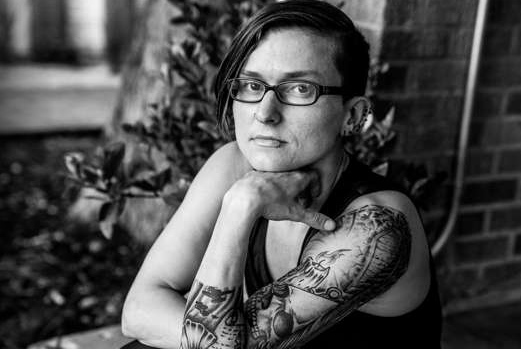
Why we didn't celebrate Gay Pride Month in women's prison
Opinion by Keri BlakingerWhen I was in prison, we relished things we could celebrate. There were the obvious ones — like releases and legal victories. And the traditional ones — like New Year’s Eve and Fourth of July. We also celebrated Labor Day and birthdays and the Super Bowl and holidays for religions we didn’t even believe in.
But we did not so much as acknowledge Gay Pride Month.
The presence of homophobia in men’s prisons is a known problem. But in the women’s lockups, it was completely different. In fact, women’s prison was the queerest place I’ve ever been — we just didn’t celebrate it. That’s because queerness, like a lot of things behind bars, carried extra risks.
That realization was a surprise for me, too. It was just a few weeks after I’d been arrested in December 2010 with a Tupperware container full of heroin. I was awaiting sentencing in an upstate New York county jail when the facility’s one openly lesbian guard pulled me aside to warn me: The higher-ups thought I was “too close” to my cellmate, who had become a good friend. Don’t sit next to each other on the bunk, the guard advised. Otherwise, we might get separated or transferred to another jail. We were annoyed at the assumption that any strong bond between women was somehow a cover for sex. But we were both scared enough to take the advice without asking questions.
A few weeks later, I was sentenced to 2.5 years behind bars, and eventually went to state prison where the staff seemed even more invested in “catching” people being gay — which was not that difficult because so many people were. Research shows that 1 in 3 women in prison identify as lesbian or bisexual. But in New York women’s prisons, it seemed like the real numbers were much higher.
That’s because a lot of the people in New York women’s lockups had prison girlfriends, even if they had identified as straight in the free world. The shift was so common we even had a catchy phrase for it: “Gay for the stay, straight at the gate.” Sometimes those prison relationships were in addition to a boyfriend or husband on the outside, and sometimes they weren’t. Sometimes they mostly resembled a close platonic friendship with a different label, and sometimes they turned into torrid affairs that led to sex in the rec yard port-a-potties. Most ended when one person got transferred, but some outlasted prison by years.
I didn’t consider myself gay for the stay because I already identified as queer before my arrest. But over the 21 months I was locked up, I dated two women. We went to the mess hall and gym together, passed notes when we couldn’t meet and sometimes made out in closets or bathroom stalls.
But even that kind of PG contact was a risk. Though sex with other prisoners was against the rules, so was hugging, holding hands or kissing. On some units, the staff made it a mission to zealously police any such activity, and we had to emphasize our supposed straightness lest we become targets for added scrutiny.
Not surprisingly, research shows queer people in women’s prisons are far more likely to spend time in solitary than straight prisoners. After all, if you got caught showing any sort of same-sex affection, you could get written up and punished with anything from a loss of phone privileges to weeks in isolation, and the sort of negative disciplinary record that left you less likely to make parole.
In theory those sorts of regulations were not inherently homophobic, and would just make it harder for prisoners to get away with sexually exploiting each other. But even the name both prisoners and staff used for the kind of disciplinary ticket you’d get reeked of stigma: Sexual transgressions were known as DGs — short for degenerate acts.
To some extent, I think we bought into that sort of institutional bigotry. Even though so many of us had girlfriends, being labeled “gay for the stay” carried a bad connotation. Some people who didn’t have girlfriends openly looked down on those who did — as if we were all just sex-starved deviants willing to risk our freedom for foolish things. (There’s probably a lengthy aside that could be made here in terms of the prevalence and stigma of biphobia in prison specifically.)
When I was writing this, I called one of my friends from prison to talk it through. Stacy pointed out that when women got caught having sex with male guards, they’d get isolated ostensibly for their own protection — and we’d all feel sorry for them. When they got written up for hooking up with a girlfriend, we had no such sympathy.
“There was no greater shame than getting a DG,” she confirmed. “You definitely internalize that.”
Even though we were gay, there was no pride.
Lately, I’ve been thinking about that a lot. When I read about book bans and “Don’t Say Gay” laws, I wonder what the downstream effects of such institutionalized bigotry will be. Already, it seems, I’m beginning to see them.
Over the past few months, for instance, I’ve been hit with hundreds of homophobic slurs and insults online — a volume of internet bigotry I’ve never gotten before, almost all in response to social media posts. To be sure, I know that queer people of color and trans folks in my position would face far more vitriol. And so far none of it has been enough to make me fear for my safety. But lately I’ve found myself questioning whether I look too queer in certain settings — both online and where I live now, in Texas. And when I think about the last time I had to ask myself that question, it’s a quick answer: It’s when I was in prison.
IN AMENDMENT
Eklil hakimi as a government official is poor, one of the lowest. but as a survivor of usa imperialism is a legend.
QUOTES FROM THE WALL STREET JOURNAL
"U.S. property and company records show that
@EklilHakimi
, the president’s longtime finance minister and ally, bought at least 10 properties in California, including during Mr. Hakimi’s time in office, and after leaving in 2018."....
"After stepping down, Mr. Hakimi and his wife, Sultana Hakimi, transferred eight of those properties to a company called Zala Group in her name at their Laguna Niguel address. His wife is the owner of the company, company records show."
......
According to California property records, their property includes a five-bedroom home and pool, in a luxury Laguna Niguel community near the beach. It is worth $2.5 million, according to the real-estate company Zillow.
..
"In total, the 10 properties are worth more than $10 million. The couple’s latest acquisition, made early this year, was a $1.1 million beachfront South Cove condo in a new development in California, according to Orange County property records." -
From Ukrainians in Ukraine who want unification between Ukraine side Russia which is the historic commonality, to Taiwanese who want Taiwan to unite side mainland china, which is the historic commonality, to Black descended of enslaved who despise whites in the usa, which is the historic commonality.
One of the big problems in modern humanity is the inability of communities or villages in this prose to functionalize that they have tribes. It isn't that people are ignorant. No one is ignorant. It isn't that people don't have plans or ideas. We all have plans or ideas. But the inability of individuals or groups to functionalize that their village has various tribes who don't want the same thing. I rephrase, who want things that can not coincide without splitting the village. If you are taiwanese and you want unification of all taiwan with mainland china, how can you get what you want while a taiwanese who wants total taiwanese independence from china get what they want? It is impossible, unless Taiwan split into two pieces, which oddly enough is the key point in the war between the states.
If you are black and you want a black state in the united states of america, if you are black and you want integration between phenotypes in the usa, if you are black and you want black people to find a new home outside the usa, how can all three get what they want with one village? It is impossible. Unless the village break up into three parts.
Same to ukraine, how does one part of ukraine join with russia while one part of ukraine go independent forever? same to the native american community in the usa. Some native americans want independence with reparations. Some native americans want to be part of the usa fabric. but how do you do both?
IReland is the key. Most in northern Ireland wanted to stay part of the UK. So that region stayed. But most in ireland wanted freedom from england and got it.
The question is how do tribes in any village learn to accept a split among parts with love/happiness... not what usually occurs. What usually occurs being, tribes telling each other their wrong or stupid or ignorant or lazy or dumb or some negative, for wanting what they want.
I know many Black people who love the USA. It is their home. They want integration. and they welcome the white neighbor and the white wife. I know many Black people who hate the USA. They want to kill all the whites in it. And have no caring for the government of the usa with its constitution at all.
But, neither group is right or wrong. Either group needs better guidance or management from their leaders or members. But better guidance or management is blockaded by the ugly thought , somewhat stemming from the usa's war between the states period , that it is better to knock down other tribes to hopefully have your tribe outlast them, as if any idea can be killed.
They Inhabited Separate Worlds in Taiwan. Decades Later, They Collided in a California Church.
David Chou and Pastor Billy Chang spent their whole lives forging parallel paths. They were born in early 1950s Taiwan, grew up just miles apart during martial law and later rebuilt their lives in the United States.
But over several decades, they carried with them vastly different memories — and views — of the island of their birth.
Mr. Chou was the son of parents who fled mainland China following the 1949 Communist revolution, part of a mass exodus of Chinese who established an authoritarian government-in-exile in Taiwan. Though he was born on the island, he and his parents were “mainlanders” devoted to the Chinese motherland and saw Taiwan as forever part of China.
Pastor Chang’s relatives were local Taiwanese who had spent centuries on the island. At home, he spoke Taiwanese Hokkien, a language that for decades was banned in public spaces. Pastor Chang grew to believe that despite Beijing’s longstanding claims, the self-ruled island had its own identity, separate from China.
In May, the lives of the two men collided in a quiet retirement community in Southern California. Authorities say that Mr. Chou, 68 — armed with two guns, four Molotov cocktails and a deep-seated rage against Taiwanese people — opened fire inside the Irvine Taiwanese Presbyterian Church as members gathered in honor of Pastor Chang, 67.
The mass shooting was part of a spate of violence that has stunned the nation in recent weeks. One day before, a white 18-year-old fueled by racist hate killed 10 Black people at a Buffalo grocery store. Less than two weeks later, an 18-year-old massacred 19 students and two teachers at an elementary school in Uvalde, Texas.
But the shooting in the church in Laguna Woods, Calif., stood out in its own way, a variation on American tragedy that seemed to show how faraway conflicts, even those in the distant past, can reverberate in the gun culture of the United States.
At the Southern California church, a crowded May 15 lunch celebration for Pastor Chang gave way to an eruption of gunfire. Mr. Chou fatally shot a doctor, John Cheng, 52, who tried to stop him, police said. Pastor Chang then threw a chair at the gunman, allowing others to subdue and tie him up with an extension cord. Five congregants, ranging in age from 66 to 92, were injured.
Mr. Chou is being held without bail on charges of murder and attempted murder pending an August arraignment.
As with internal tensions over the years in immigrant communities worldwide — California’s Little Saigon and Miami’s Cuban-American precincts are two U.S. examples — the crime has echoed across the Taiwanese diaspora and underscored divisions that remain frozen in time, even as younger generations have moved beyond them.
“How do we reconcile the views of these identities?” said Annie Wang, 42, a Northern California-based co-host of the podcast “Hearts in Taiwan,” noting that her parents spent years avoiding talk of the schisms related to Taiwanese independence. “It’s been so behind closed doors, but I can’t see a way around this anymore. Someone went and killed for this.”
The shooting has also deepened fears about safety in a time of rising anti-Asian attacks in the United States and underscored debates about access to firearms and mental health services. Those who know Mr. Chou say he had been unraveling for years and was desperate in the face of eviction, a dying wife and financial troubles.
A Strong Taiwanese Identity
Growing up in the countryside of central Taiwan in the 1960s, Pastor Chang always felt at home at church. His father was a Presbyterian pastor, and the congregation members, mostly local Taiwanese farmers, would often bring the young family selections of their latest harvests: water spinach, cabbage and rice.Outside of that community, Pastor Chang was not always shown such favor. He was a benshengren, a descendant of long-ago ethnic Chinese settlers. His classmates whose families had just fled the mainland, or waishengren, enjoyed certain advantages he did not have.
Under the authoritarian rule of Chiang Kai-shek’s Nationalists, who lost the civil war to the Communists, mainlander families received preference for civil servant jobs and government positions. Schools were required to teach in Mandarin and promote a Chinese identity, while Taiwanese Hokkien was forbidden in public spaces. Over four decades, tens of thousands of people who dissented from the government’s policies were arrested, and at least 1,000 — more than half benshengren — were executed.
Pastor Chang said he went through a “late political awakening” in the 1980s while in seminary, devouring forbidden texts that discussed this political repression and pushed the idea of a distinct Taiwanese identity. He joined large protests to call for freedom of speech, the first buds of a movement that would eventually lead to democracy in Taiwan in the 1990s.
Pastor Chang emigrated to the United States in 1991 following his parents and siblings, assured in his own Taiwanese identity. He led a small church in Camarillo, Calif., before joining Irvine Presbyterian in 1999. Over time, the congregation grew beyond 150 people and became the largest of about 40 official Taiwanese Presbyterian congregations in the United States.
Immigrants from Taiwan joined waves of Chinese-speaking immigrants from mainland China and Hong Kong, and they included both benshengren and waishengren. By and large, they have all coexisted peacefully in their adopted country, and tensions over homeland politics have rarely risen to the surface.
In the United States, Taiwanese Presbyterian churches have become a social hub for older congregants to bond over their common language and shared experiences. At church bazaars, grandmothers and aunties cook beloved Taiwanese snacks, including sticky rice wrapped in bamboo leaves, and oyster pancakes.
“That’s what I remember church being: celebration and remembrance of your culture,” said Peggy Huang, 51, a Yorba Linda city councilwoman whose parents are members of the Laguna Woods church.
While the church was not overtly political, the belief in a separate Taiwanese identity suffused the institution. Unlike some Taiwanese-led churches that offer services in Mandarin or English, most Taiwanese Presbyterian churches in the United States adhere to the Taiwanese language. Pastor Chang said it stemmed partly from their view of Mandarin as the “language of the oppressors.”
In addition to lectures on topics like combating dementia and estate planning, the Laguna Woods church has organized talks on the 2/28 Incident, during which the Nationalist government killed up to 28,000 people in Taiwan in the late 1940s. During services, members often pray for Taiwan’s safety in the face of China’s rising threats. Pastor Chang said his congregation had very little interaction with the waishengren in Laguna Woods, who mostly attend a Mandarin-language church.
“It would be an overstatement to call us a pro-independence church,” Pastor Chang said. “But we do not deny that we love Taiwan.”
Love for the Motherland
Mr. Chou grew up with the trappings of a middle-class life: He lived with his four siblings in a modest, two-story concrete house in the central city of Taichung. Because his father was an officer in the Nationalist army, his family was treated favorably and he attended one of the top high schools on the island.But the waishengren community was also steeped in the pain of having to flee mainland China when Communists took over. And Mr. Chou decades later told friends he was bullied and hit by the children of longtime Taiwanese families. (The divide between the two communities still shapes politics in Taiwan, but political violence is rare.)
Friends and relatives of Mr. Chou have been trying to make sense of the mass shooting. But those familiar with his political leanings were less surprised.
David ChouCredit…Orange County Sheriff’s Department, via Associated Press
“Of course, we feel bad for the victims, but he did it for a reason,” said James Tsai, a friend of Mr. Chou’s in Las Vegas, pointing to resentment fueled by the childhood bullying.Like many waishengren of his generation, Mr. Chou held on to a romanticized vision of China as a lost homeland even after he moved in 1980 to the United States, where he worked in the hospitality industry.
In the preface to a mixology book published in 1994, Mr. Chou called Mao Zedong and Deng Xiaoping “great leaders” for making China prosperous. He resented the emergence in Taiwan in recent decades of a Taiwanese identity separate from China and rooted in the island’s democratic values. In a 2018 book, Mr. Chou called benshengren “poisoned” rebels who had betrayed their Chinese ancestors with their pro-independence views.
Mr. Chou settled down in Las Vegas, where he and his wife bought property that they rented out to help put their two sons through dentistry school. But Mr. Chou soured on the United States in 2012 after he was assaulted by a tenant over a rent dispute, according to friends and his 2018 book. The attack fueled what would become an obsession with guns.
Several members of the local Taiwanese Presbyterian Church and a Taiwanese social club said Mr. Chou mingled occasionally with the benshengren community at their events. Most were unaware of his political views until 2019, when his photo appeared in an article about an event hosted by a pro-China group.
“Swiftly eliminate the monsters of Taiwanese independence,” read a banner that Mr. Chou brought to the event.
In a telephone interview, Jenny Koo, chairwoman of the organization, said she had met Mr. Chou only twice and that she remembered thinking his political views were “too radical.”
It remains unclear why Mr. Chou targeted the church in Laguna Woods. He has a brother who lives in the area, according to friends and his niece.
The police said last month that the gunman acted alone when he chained, nailed and super-glued shut the doors to a multipurpose room before he opened fire on congregants. Several days later, the Los Angeles office of the World Journal, a Chinese-language newspaper, said that it had received seven handwritten journals titled “Diary of an Independence-Destroying Angel” from Mr. Chou.
On Friday, Mr. Chou stood at the front of a cage, making fleeting eye contact with attendees at a hearing in a Santa Ana, Calif., courtroom. He wore a blue surgical mask and a lime green jumpsuit used for inmates in protective custody.
The Ripples of History
The Laguna Woods shooting came as a shock to many in the Taiwanese and Chinese diaspora, particularly those in the younger generation who grew up in the United States and felt little connection to decades-old grievances.Ms. Wang, the podcast co-host, said that as a child, she struggled to understand why her mother identified as a Chinese American, even though she spoke Taiwanese and her family had been in Taiwan for generations.
It was not until Ms. Wang, and a cousin, Angela Yu, began learning more about Taiwan’s history that they understood the fraught nature of identity in the diaspora, and why their parents adhered to their Chinese American identity while friends’ parents emphasized being Taiwanese.
The cousins, who now identify as both Chinese American and Taiwanese American, started their podcast to discuss these thorny issues.
“The time that our parents immigrated was a freezing of identity, and they passed those ideas about identity on to their kids,” Ms. Wang said.
She added that she hoped the shooting would open the door for the diaspora to “speak more openly and honestly” about these struggles.
Reflecting on the church confrontation, Pastor Chang sounded a note of resignation.
“The gunman and I, our generation, had the misfortune of being born during a political era that forced our two groups to not get along,” he said. “That is the original sin of our generation.”
Amy Qin reported from Taipei, Taiwan. Jill Cowan reported from Laguna Woods, Calif. and Santa Ana, Calif. Shawn Hubler reported from Sacramento. Amy Chang Chien reported from Taichung, Taiwan.
-
Mississippi massala back in theaters
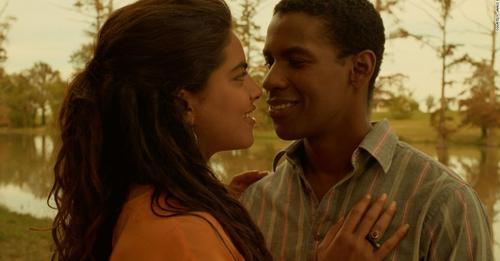
your thoughts?
Mine are below
interesting... three parts to this story- misssissippi- a black man whose forebears were enslaved in the usa, a black woman who is a recent immigrant and has asian ancestry, not african.... HAs mississippi changed? I say no. Still the fiscally poorest state, still a state with no nonsense phenotypical lines. Black men in the usa today like all male phenotypical groups in the usa still marry mostly into their own community. but i think white asian women <chinese/korean/japanese> get more attention than black asian. Asian women in the usa today like all female geographic descendcy groups in the usa still marry mostly into their own community. but I think white non asian men get more attention than black non asian men. but in my personal experience I have found more indians of asia <female or male> that see their caste system as a guise for phenotypical bias. And have embraced black unity, not african , but black. and I have seen more black people of african descent in the usa realize that being black is also a native phenotype to asian or native american not merely africa. so, slow growth. Mississippi is mississippi so... the yojibwe word means big river sooo, it takes a long time to get from one place t another -
Happy birthday Hattie McDaniel
The lesson in her story is how Black comprehend being peaceful. Black people in the usa in the past as now, say they want peace to all outside as well as all parts in, but then they want a defiance to any insult, any subjugation. but being peaceful is about accepting levels of insult of subjugation
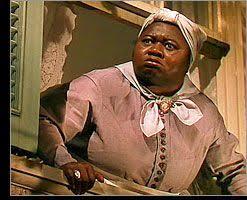
Some prose about her, I don't know the author but think it a good share
"Why should I complain about making $700 a week playing a maid? If I didn't, I'd be making $7 a week being one."
Hattie McDaniel was attacked by the NAACP during her career for appearing in negative, stereotyped servile roles, Hattie strongly and proudly stated that she did the best she could. She went on to state that she worked not only for herself but thought she was working for future generations of African-Americans as well. She always hoped people would come around and understand what she had to go through in Hollywood and was extremely hurt at the way she was treated, for the roles she couldn't get, and how the NAACP kept pushing the image of Lena Horne on her.
When black actors and actresses couldn't find a decent place to stay in Los Angeles, Hattie opened her doors to them at her home.
The competition to win the part of Mammy in "Gone with the Wind" (1939) was almost as fierce as that for Scarlett O'Hara. First Lady Eleanor Roosevelt wrote to film producer David O. Selznick to ask that her own maid, Elizabeth McDuffie, be given the part. McDaniel did not think she would be chosen because she had earned her reputation as a comic actress. One source claimed that Clark Gable recommended that the role be given to McDaniel; in any case, she went to her audition dressed in an authentic maid's uniform and won the part. Despite the fact Gable played a joke on her during filming (putting real brandy in the decanter instead of iced tea during the Bonnie Blue birth celebration scene), they were actually good friends. Gable later threatened to boycott the premiere in Atlanta because McDaniel was not invited, but later relented when she convinced him to go.
For her performance, McDaniel won the 1939 Academy Award for Best Supporting Actress, the first black actor to have been nominated and win an Oscar. "I loved Mammy," McDaniel said when speaking to the white press about the character. "I think I understood her because my own grandmother worked on a plantation not unlike Tara." Her role in Gone with the Wind had alarmed some whites in the South; there were complaints that in the film she had been too "familiar" with her white owners. At least one writer pointed out that McDaniel's character did not significantly depart from Mammy's persona in Margaret Mitchell's novel, and that in both the film and the book, the much younger Scarlett speaks to Mammy in ways that would be deemed inappropriate for a Southern teenager of that era to speak to a much older white person, and that neither the book nor the film hints of the existence of Mammy's own children (dead or alive), her own family (dead or alive), a real name, or her desires to have anything other than a life at Tara, serving on a slave plantation. Moreover, while Mammy scolds the younger Scarlett, she never crosses Mrs. O'Hara, the more senior white woman in the household. Some critics felt that McDaniel not only accepted the roles but also in her statements to the press acquiesced in Hollywood's stereotypes, providing fuel for critics of those who were fighting for black civil rights. Later, when McDaniel tried to take her "Mammy" character on a road show, black audiences did not prove receptive.
Happy Birthday, Hattie McDaniel!
-
AMERICAN BLACK FILM FESTIVAL ANNOUNCES 2022 TALKS, PANELS AND TOP LINE TALENT FOR 26TH ABFF JUNE 15-19, 2022
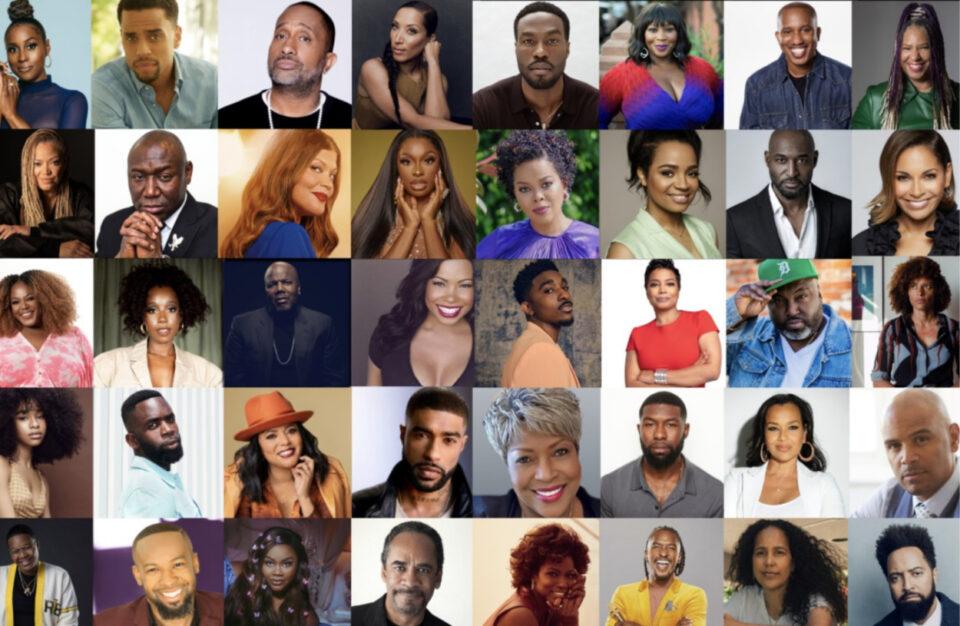
Following is the schedule of 2022 ABFF talk series events to date.Live Events
Thursday, June 16, 2022
The NFT Masterclass for Creative
NFTs have risen as one of the hottest topics in the entertainment industry. Understanding the intellectual property issues in NFTs is essential to our protection and advancement. This session will address the ABCs of NFTs, including copyright, trademark, publicity issues and tax matters surrounding NFTs. Instructed by Kimra Major-Morris, attorney at law.Leading From Within
Presented by Prime VideoFrom the suffrage movement to the civil rights movement, history has shown us we all win when Black women lead. Join three Black women executives from Prime Video for an intimate discussion on how they are leading the charge to create content across series and features that all audiences will love.
Moderators: Latasha Gillespie (head of diversity, equity and inclusion, Prime Video)
Panelists: Amber Rasberry (senior executive development, Movies – am*zon Studios),
Lauren Anderson (co-head Content and Programming, am*zon Freevee) and Larissa Bell (development executive, am*zon St.)
The Black Beauty Effect Panel
Presented by Black Experience on XfinityAn intimate discussion on the global impact of Black Beauty in the upcoming docuseries, The Black Beauty Effect. This discussion will highlight black women and their overall impact in the beauty industry, despite its historical exclusion and oppression of black women.
Panelists: Andrea Lewis, series creator, Kahlana Barfield Brown, beauty expert, Whitney White, natural hair entrepreneur, CJ Faison, executive producer
Funding Your Story: The Nuts and Bolts of Film Finance
Presented by the Motion Picture AssociationYou can be a great storyteller and writer of words that captivate the masses. However, you can’t share that story with the world without having a financing plan in place to get the story made! In this panel, representatives from major studios and a lead film finance company will provide an overview of the variety of ways content creators can finance their production. As each panelist has a unique background in the film finance world, this panel will provide filmmakers with a basic understanding of what to expect when putting together a financing package.
Moderator: John Gibson, vice president, External and Multicultural Affairs, Motion Picture Association
Panelists: Donyelle Marshall, LATAM business and tax analyst, Florida Office of Film and Entertainment; Chiquita Banks, Esq., senior vice president, TPC; Graham Lee, Esq., vice president, Tax Counsel-Production, Paramount; Brian O’Leary, Esq., senior vice president Tax, NBCUniversal (Invited)
Bel-Air: Clips and Conversations
Presented by Comcast NBCUniversalPeacock presents an intimate conversation with the cast members from Bel-Air about celebrating Black on-screen characters and discussing story themes such as love, family and relationships.
Moderator: Scott Evans
Panelists: Rasheed Newson, Adrian Holmes, Cassandra Freeman, Coco Jones, Akira Akbar, Jimmy Akingbola and Jordan Jones
Bust Down in Laughter with NBCU’s Comedy Crew
Presented by Comcast NBCUniversalJoin talent from NBCU’s hit comedies for a lively conversation about celebrating and shaping Black culture through stories of family, friendships, love and joy on TV.
Moderator: Danielle Young, journalist and host of Real Quick
Panelists: Nicole Byer, Phil Augusta Jackson and Carl Tart from NBCU’s “Grand Crew” and Sam Jay, Langston Kerman, Jak Knight and Chris Redd from Peacock’s “Bust Down”
Shoot Your Shot
Presented by ALLBLKALLBLK, the first and largest streaming service for Black TV and film from AMC Networks, is partnering with the American Black Film Festival (ABFF) to kick off a nationwide casting call for the co-star of its latest original production, “Judge Me Not.” A new hour-long psychological/legal drama created by TV icon, Judge Lynn Toler.
“Judge Me Not” focuses on a millennial Black female attorney navigating mental health issues, a rocky romantic relationship and a volatile family, who shocks everyone when she wins a judicial seat at 31. Once there, she fights her demons while managing the chaos of a busy court.
25th Annual HBO Short Film Award Showcase
Presented by Warner Bros. Discovery and HBOFive finalists will compete in ABFF’s HBOÒ Short Film Award. The prestigious showcase will celebrate 25 years of HBO’s commitment to recognizing the next generation of diverse, artistic and creative talent at ABFF. This year’s groudbreaking directors with diverse style of filmmaking are: Sherif Alabede (Another Country), Elisee Junior St. Preux (Aurinko in Adagio), Gia-Rayne Harris (Pens & Pencils), Destiny J. Macon (Talk Black) and Rebecca Usoro (The Family Meeting)
Friday, June 17, 2022
Masterclass: Legal Aspects of Indie Filmmaking
Presented by Arrington and PhillipsThis seminar will introduce filmmakers to the legal and business aspects of independent filmmaking. From conception to distribution, attendees will learn all the basics needed to make, produce and distribute their own independent film. Instructed by Marvin Arrington and Vince Phillips.
Johnson: Clips and Conversations
Presented by Bounce TVJoin the cast and producer of Johnson for a conversation around the anticipated return of season two. Johnson focuses on life-long best friends and their sometimes-complicated journey of love, friendship, heartbreak and personal growth as told from the Black male perspective. The show is executive produced by Eric C. Rhone and Cedric The Entertainer’s A Bird and A Bear Entertainment.
Moderator: David J. Hudson, head of Original Programming for Scripps Networks
Panelists: Deji LaRay (series creator and show runner); Thomas Q. Jones (show runner, “P- Valley,” “Luke Cage”); Philip Smithey (“Switched at Birth,” “The Rookie”); and Derrex Brady (“NCIS,” “First”) with Earthquake (“The Neighborhood,” “Chappelle’s Home Team – Earthquake: Legendary”) and Eric C. Rhone (executive producer)
Finding Happy: Clips and Conversations
Presented by Bounce TVMeet the cast of Bounce’s newest series, Finding Happy, a show created about, for and by Black women. The dramedy follows Yaz Carter as she navigates her loving-but-complicated family, her stagnant career and a merry-go-round of unrequited love as she looks to find her happy. The show is executive produced by Eric C. Rhone and Cedric The Entertainer’s A Bird and A Bear Entertainment.
Moderator: Keisha Taylor Starr, chief marketing officer for Scripps Networks
Panelists: B. Simone (MTV’s “Wild ‘n Out”); Kim Coles (“Living Single”); Marketta Patrice (“Black Jesus”); Angela Gibbs (“Hacks,” “The Fosters”); and Kendra Jo (series creator and show runner)
A Champion of Independent Black Film: Celebrating the Legacy of Michelle Materre
Presented by MetaMichelle Materre, prolific film distributor, professor, curator and fervent supporter of women and BIPOC filmmakers, passed away in March. To honor her decades as a champion of independent film and her mission to lift the voices of underrepresented people in cinema, ABFF and Daughters of Eve Media will present a roundtable discussion featuring trailblazing and renowned women filmmakers.
Moderators: Terri Bowles and Dr. Michele Prettyman
Panelist: Ayoka Chenzira
Fierce Female Filmmakers of TriStar Pictures
Presented by Sony Pictures EntertainmentJoin three trailblazing fierce, female, filmmakers — Gina Prince-Bythewood (Love & Basketball), Kasi Lemmons (Eve’s Bayou), and Nicole Brown (TriStar Pictures President) for an intimate sit-down conversation as they open up about their highly anticipated Sony Pictures releases: The Woman King starring Viola Davis, and the Whitney Houston biopic I Wanna Dance with Somebody starring Naomi Ackie. This conversation will dive into the importance, power and future of Black film while providing a sneak peek of what audiences can expect in their upcoming releases via exclusive content.
Moderator: Brett King, vice president, Creative Programming, Diversity and Inclusion for Sony Pictures Entertainment
Panelists: Nicole Brown, president of TriStar Pictures; Kasi Lemmons, director, I Wanna Dance with Somebody; Gina Prince-Bythewood, Director, The Woman King
Flipping the Script: Defining your own Path to Success presented by Warner Bros. Discovery Equity and Inclusion
Presented by Warner Bros. DiscoveryOver the last few decades, the road to stardom and success in Hollywood has changed significantly. With the emergence of the digital age, social media and waves of new talent, many are finding success, their own way and on their own terms. This engaging and motivating panel discusses the impact of breaking into the entertainment industry both traditionally and non-traditionally; and ways to stay relevant in an ever-changing production landscape that is no longer one size fits all.
Moderator: Karen Horne, senior vice president, Warner Bros. Discovery, Equity and Inclusion
Panelists: Salli Richardson-Whitfield (Winning Time and The Gilded Age, HBO), Carlos King (Love & Marriage Franchise, OWN), Ashley Blaine Featherson-Jenkins (Trials to Triumphs Podcast, OWN), Bashir Salahuddin (South Side, HBO Max), Diallo Riddle (South Side, HBO Max). Networking Reception to follow. RSVP and COVID vaccination required.
“This Is Us”: From Script to Screen
Presented by Comcast NBCUniversalGo behind the scenes of NBC’s beloved drama “This Is Us” with actress and writer Susan Kelechi Watson, writer and producer Eboni Freeman and producer Christiana Hooks. Delve into a poignant conversation about the final season and the episode “Our Little Island Girl: Part Two” that is centered on Beth Pearson and was co-written by Susan and Eboni. Learn about the show’s unique approach to bringing multidimensional narratives to life by reflecting on the past, inspiring the future, and creating beautiful stories that transcend generations.
Moderator: Danielle Young, journalist and host of Real Quick
Panelists: Susan Kelechi Watson, actress and writer; Eboni Freeman, writer and producer; Christiana Hooks, producer
Life Of A Showrunner
Presented by UPSThis panel examines the road to becoming a television showrunner, the duties and demands it entails, career strategies to be considered, the parameters of creative control as well as the freedom it affords and what running a writers room looks like.
Panelists: Robin Thede (A Black Lady Sketch Show), Rikki Hughes (The Hype), Randy Huggins (BMF)
ABFF Comedy Wings Showcase
Presented by Warner Bros. Discovery and HBOA night of laugher hosted by Aida Rodriquez and introducing: Marshall Brandon, Cherie Danielle, Shanna Christmas, Rob Gordon and Alan Massenburg
Saturday, June 18, 2022
Academy 365
Presented by the Academy of Motion Picture Arts and SciencesThe Academy of Motion Picture Arts and Sciences is a 95-year-old organization that has long been known for the Oscars, often called “Hollywood’s biggest night.” But what goes on the other 364 days of the year? In this panel, key leadership shares how the Academy engages their membership of over 10,000 members on a year-round basis and leads industry initiatives that celebrate the history of film, amplifies its global community of artists and advocates for increased representation across the industry.
Moderator: Scott Evans, Access Hollywood
Panelists: DeVon Franklin, governor-at-large; Christine Simmons, chief operating officder, Academy; Shawn Finnie, executive vice president, Member Relations and Awards, Academy; Meryl Johnson, vice president, Digital Marketing, Academy
Best of ABFF Awards Presentation
Hosted by Dondré WhitfieldJoin us for the announcement of the festival winner of this year’s competitions including: Best Narrative Feature, Best Director, Best Screenplay, John Singleton Award for Best First Feature, Best Documentary, Best Web Series and HBO Short Film Award. This event will be live-streamed on ABFF PLAY.
Cocktails, Conversations, and Financial Facts with LisaRaye McCoy
Presented by Prudential FinancialActress and Entrepreneur LisaRaye McCoy will share her journey with money, finances, and setting financial goals from her life on the South Side of Chicago to her life in the film industry. Prudential financial professionals will be available to answer financial questions.
Moderator: Delvin Joyce (Prudential Financial Planner & Founder of Prosperity Wealth Group)
The Leading Man
Presented by CadillacA panel of esteemed male actors examine the images of Black men in film and television, share stories about their journeys to success and discuss the messages they wish to convey to boys and young men in the community.
Moderator: Malinda Williams
Panelists: Trevante Rhodes, Yahya Abdul-Mateen II, Michael Ealy
Critter Fixers: Clips and Conversation
Presented by Disney+Join veterinarians Dr. Terrence Ferguson and Dr. Vernard Hodges as they discuss some of their most unique animal cases and provide great tips and techniques to help care for your pets.
Moderator: Jill Tracey, Morning Show co-host on WHQT Hot 105 Miami
Panelists: Dr. Terrence Ferguson, Dr. Vernard Hodges
Closing Night Screening
Rap Sh!tCourtesy of Warner Bros. Discovery and HBO Max
Rap Sh!t follows two estranged high school friends from Miami, Shawna and Mia, who reunite to form a rap group.
Cast: Aida Osman (Shawna), KaMillion (Mia), Jonica Booth (Chastity), Devon Terrell (Cliff,) RJ Cyler (Lamont), Executive Producer and Writer: Issa Rae (for HOORAE); Executive Producer and Showrunner: Syreeta Singleton; Executive Producer: Montrel McKay (for HOORAE); Executive Producers: Dave Becky and Jonathan Berry (for 3 Arts Entertainment); Executive Producer: Deniese DavisHip hop duo Yung Miami and JT of City Girls serve as co-executive producers, along with Kevin “Coach K” Lee and Pierre “P” Thomas for Quality Control Films and Sara Rastogi for HOORAE. Sadé Clacken Joseph directed the pilot. Rae’s audio content company Raedio will handle music supervision for the series.
Sunday, June 18, 2022
ABFF Community Day
Sponsored by the Greater Miami Convention and Visitors Bureau (GMCVB)The festival, in partnership with the Greater Miami Convention & Visitors Bureau, presents a day of entertainment curated for family audiences.
Virtual Events available on ABFF PLAY https://abffplay.com/
Life As Entrepreneurs
Presented by Morgan StanleyA discussion exploring what it takes to build a family brand, the importance of being financially literate, and the value of building generational wealth.
Panelists: Husband and wife team DJ Envy and Gia Casey
Mathis Family Matters
Presented by Comcast NBCUniversalE! Entertainment presents an intimate conversation with the cast of E!’s new docuseries, “Mathis Family Matters” about representation, the black family on television today, their personal experiences and perspectives around diversity both in front of and behind the camera. To further the dialogue regarding unscripted television, they will exchange thoughts on the importance of Black producers ensuring that our stories aren’t overlooked and we are represented equally in today’s diverse culture.
Moderators: Ebony Magazine
Panelists: Judge Greg Mathis, Linda Mathis, Jade Mathis, Camara Mathis, Greg Mathis Jr., Amir Mathis
Universal GTDI’s Five Years of Creative Impact
Presented by Comcast NBCUniversalIn celebration of Universal’s Global Talent Development & Inclusion (GTDI) five-year anniversary, this panel spotlights friend-of-GTDI director Jude Weng, accompanied by four incredible alumni who have participated in GTDI’s flagship programs. Moderated by Rotten Tomatoes Awards Editor Jacqueline Coley, this panel aims to highlight the participants’ journeys towards establishing a career in the industry, as well as provide their perspective on how they view representation and access in the industry.
Moderators: Jacqueline Coley
Panelists: Jermaine Stegall, Juel Taylor, Jude Weng, Marielle Woods
Gate-Opening: Black Exec Round Table
Presented by Lionsgate and StarzA candid conversation with Black development executives at Lionsgate and Starz demystifying the studio system, providing helpful guidance and insight into the initial development stages to support rising Black filmmakers.
Moderator: Kamala Avila-Salmon — head of Inclusive Content at Lionsgate
Panelists: Kathryn Tyus-Adair, senior vice president of Original Programming at Starz, Jade-Addon Hall, vice president of Current Series at Lionsgate TV, Aaron Edmonds, vice president of Production and Development at Lionsgate
ABFF 2022 sponsors and partners to date include Warner Bros. Discovery & HBOÒ (Founding); Cadillac, City of Miami Beach, Greater Miami Convention and Visitors Bureau (GMCVB), Sony Pictures Entertainment, Prime Video (Presenting); American Airlines, Comcast NBCUniversal, Meta, Bounce TV, Black Experience on Xfinity, UPS, IMDb (Premier); ALLBLK, Prudential Financial, Variety, TV One, Netflix, Starz, Disney+, Onyx Collective (Official); Accenture, Motion Pictures Association (MPA), A&E, The SpringHill Company, The Boston Globe, Color Of Change, Confluential Films, Arrington & Phillips, Fulton Films, BET Her, Morgan Stanley, Miami Beach VCA, Frankfurt Kurnit Klein & Selz, Academy of Motion Picture Arts and Sciences (Supporting); Endeavor Content and DC Office of Television (Industry).
-
In this community or elsewhere online I suggested that the Black populace in the USA has financially tried everything, applied everything. But has not governmentally tried everything.
The one absent attempt in the USA in terms of government in the USA by the Black populace in the USA is a Black PArty of Governance.
Now, whites in NEw JErsey are starting their own third party. It isn't a federal party. It is focused on New Jersey alone.
The question I have isn't validating the strategy of a Black party of governance. My posts below provide ample arguments.
I am not interesting in being apart of a Black party of governance in the USA. I am not suggesting anything is easy. I never said the idea should be implemented as a straight confronter to the elephants or donkeys. < Which the whites in the article below prove >
The question is what is the source behind black rejection to this idea?
I never said it was easy. I suggested it need to be done in small municipal levels. I am not trying to become part of said party or be an idol in it. Enough Black people are financially affluent in modern usa to support it.
Some Black folk in this community or before elsewhere online or offline, suggested that the two parties are adequate, utilizing personal or individual instances of positive use, or stating that the black populace in majority doesn't utilize the two party system well enough.
But, my problem with all those arguments is in over one hundred and fifty years, black people have supported the POAL <party of abraham lincoln> or the POAJ <party of andrew jackson> in great or positive fashion. But it didn't yield better results.
Don't tell me that the black populace in the USA when engaged more positively or disengaged more positively to either party , after yielding the same results, places the problem on the black populace. To restate, the Black populace has heavily supported either party full of agenda at times and at other times disengaged either party with nonchalance. But the results are the same. So how can the problem be Black people?
If you are getting you ass kicked after training for months with experienced trainers and a complete training scenario fully finances and then you are still getting your ass kicked when you are not training at all and are not investing or have any investment to your training. then maybe you need to stop getting in that ring.
Maybe you need to make your own ring to fight? Will your own ring be lauded as the one that is older that is more well known that is better financed? probably not. But, It is your own ring and to the community connected to it you can do far more than merely be a member of another ring. You can potentially help others.
But, the question then is, do Blacks want to help Blacks? Are Blacks telling other Blacks to pull up bootstraps?
Black folk in the USA or anywhere else have to try new things if they don't want to go in circles.My Black Party of Governance posts
January 21st 2019
https://aalbc.com/tc/blogs/entry/194-richard-murray-creative-table/?do=findComment&comment=496
February 6th 2019 - video is Feb 2nd 2019
https://aalbc.com/tc/blogs/entry/194-richard-murray-creative-table/?do=findComment&comment=498
June 25th 2020
https://aalbc.com/tc/blogs/entry/261-good-news-blog-stories-through-a-year/page/2/?tab=comments#comment-914
April 12th 2022
https://aalbc.com/tc/topic/9211-the-black-community-in-the-usa-need-an-alternative-to-black-officials-from-the-party-of-andrew-jackson-or-abraham-lincoln/
April 20th 2022
https://aalbc.com/tc/profile/6477-richardmurray/?status=1890&type=status
June 1st 2022
https://aalbc.com/tc/profile/6477-richardmurray/?status=1929&type=statusI add a Black member of the party of Andrew Jackson who proves my point
https://aalbc.com/tc/topic/9449-interesting-discussion-on-the-impact-of-immigration-on-the-afroamerican-community/?do=findComment&comment=52623
MLK jr Bootstraps
https://aalbc.com/tc/profile/6477-richardmurray/?status=1924&type=status
ARTICLE
New Jersey Centrists Seek to Legalize Their Dream: The Moderate Party
by Blake HounshellWhen Chief Justice William H. Rehnquist, writing for the Supreme Court docket majority in a landmark 1997 case, rejected a minor celebration’s demand that it’s allowed to appoint candidates who have been already on the Democratic ticket, he argued that states have a robust curiosity in “the political stability of the two-party system.”
Almost 25 years later, Rehnquist’s elementary premise is now broadly in query. Indicators of maximum polarization and voter unease are all over the place, from this week’s congressional hearings over one celebration’s baldfaced try and overturn a presidential election to the surging variety of Individuals who decline to register as both Democrats or Republicans.
Previous efforts to face up viable third events have foundered repeatedly in america, nonetheless — be it as a result of they hitch themselves to quixotic causes on the expense of extra mainstream appeals, or due to the obstacles the 2 main events routinely place of their path.
A brand new political celebration in New Jersey is hoping to disrupt that sample by embracing the very method that Justice Rehnquist scorned — fusion voting — with ambitions of taking the concept nationwide. And whereas the celebration’s founders acknowledge that the probabilities of success could also be low, supporters say they’ve recognized a components that provides better promise than extra sweeping however in the end unworkable concepts for overhauling America’s sclerotic political system.
The celebration, led by a core of native Republicans, Democrats and independents alarmed by the G.O.P.’s rightward drift below former President Donald J. Trump, has given itself a reputation that makes its middle-of-the-road ideological positioning crystal clear: the Reasonable Celebration.
The celebration’s purpose is to offer centrist voters extra of a voice at a time when, the group’s founders say, America’s two main events have drifted towards the political fringes. However in contrast to conventional third events, the Reasonable Celebration hopes to nudge the Democratic and Republican Events towards the middle, not exchange or compete with them.
One of many celebration’s co-founders is Richard A. Wolfe, a associate on the regulation agency Fried Frank and former small-town mayor who says he’s repulsed by the Republican Celebration’s embrace of conspiracy theories and fealty towards Mr. Trump.
“Beginning round 2020, my spouse and I began to really feel just like the Republican Celebration now not represented our views,” Mr. Wolfe stated in an interview. “We began to get very uncomfortable with the extremism.”
However he couldn’t convey himself to assist the Democratic Celebration, which he views as too beholden to left-wing financial concepts and cultural causes. Feeling politically “homeless,” Mr. Wolfe started having quiet conversations with like-minded people about beginning a brand new political celebration and stumbled throughout the idea of fusion voting, he stated.
Beneath fusion voting, a number of events can nominate the identical candidate, who then seems greater than as soon as on the poll. Proponents say it permits voters who don’t really feel comfy with both main celebration to specific their preferences with out “losing” votes on candidates with no hope of successful.
The apply is frequent in New York, which has two distinguished fusion events: the Working Households Celebration, which backs progressive candidates however normally aligns with Democrats; and the Conservative Celebration, which helps candidates on the center-right however normally aligns with Republicans. Within the Connecticut governor’s race in 2010, 26,000 votes solid on the Working Households Celebration poll line for Dannel P. Malloy, a Democrat, made the distinction between victory and defeat.
Forty-three states, together with New Jersey, prohibit fusion voting, nonetheless. The Reasonable Celebration hopes to alter that by difficult these bans in state courtroom.
The primary check case is Consultant Tom Malinowski, who’s favored to win the Democratic main to proceed to symbolize New Jersey’s Seventh Congressional District. An upscale suburban space that features Mr. Trump’s Bedminster golf membership, the district turned considerably extra Republican-leaning after a bipartisan redistricting fee redrew the state’s maps final yr.
Mr. Malinowski’s seemingly Republican opponent, Tom Kean Jr., is the scion of a robust political dynasty in New Jersey. His father, Tom Kean Sr., is a reasonable former governor of the state who gained nationwide recognition as a co-chairman of the Sept. 11 fee. Mr. Malinowski narrowly defeated the youthful Mr. Kean in 2020, successful by simply 5,329 votes.
New Jersey political analysts anticipate an much more troublesome race this yr for Mr. Malinowski, who fastidiously weighed his possibilities earlier than deciding to hunt a 3rd time period.
In an interview, Mr. Malinowski stated that he welcomed the Reasonable Celebration’s assist.
“I feel that is a solution to a query that lots of Individuals have been asking,” Mr. Malinowski stated. “Folks in the midst of the political spectrum really feel disenfranchised by events that play to their base, notably on the Republican facet.”
Though it has been dominated by the Democratic Celebration lately, New Jersey has a historical past of rewarding centrist politicians. Of the state’s practically 6.5 million registered voters, barely over 4 million are registered as Democrats or Republicans, leaving 2.5 million unaffiliated with both main celebration.
A ballot of New Jersey voters performed in April by the Monmouth College Polling Institute discovered that 52 % of adults within the state both want or lean towards retaining Democrats accountable for Congress, whereas 41 % favor placing Republicans in energy.
Fusion voting was as soon as widespread throughout america. However most state legislatures outlawed the apply after it turned a well-liked software of minor events and actions through the Progressive Period, threatening the 2 main events’ unique maintain on voters.
Beneath Gov. Woodrow Wilson, New Jersey handed a regulation in 1911 expressly permitting fusion tickets. Wilson hailed the measure as placing “each technique of alternative within the palms of the folks,” based on a recent New York Occasions account. However a decade later, New Jersey state lawmakers, alarmed by the expansion of minor events, barred candidates from showing greater than as soon as on the identical poll.
On Tuesday, the Reasonable Celebration submitted nominating petitions on Mr. Malinowski’s behalf to the New Jersey secretary of state, Tahesha Approach, together with a memorandum and varied different materials laying out the case for why fusion voting must be authorized. The secretary of state’s workplace declined a request for remark.
If, as anticipated, Ms. Approach declines to permit Mr. Malinowski to run on the Reasonable Celebration ticket, the celebration and a few of its supporters plan to problem her determination in state appeals courtroom.
Beau Tremitiere, a lawyer at Shield Democracy, a nonprofit group that’s representing a voter who intends to problem Ms. Approach’s seemingly ruling, stated that New Jersey had robust protections for voting rights and freedom of speech, meeting and affiliation that should invalidate the century-old ban on fusion tickets.
Shield Democracy turned concerned, Mr. Tremitiere stated, as a result of the group believes that fusion voting “may help present a significant off-ramp to escalating extremism and polarization.”
The state-centric technique might permit the celebration to bypass the Supreme Court docket, whose 1997 ruling that states have the authority to outlaw fusion tickets is taken into account unassailable below the federal Structure, notably given the courtroom’s present conservative majority.
However the Reasonable Celebration’s authorized staff plans to argue that not solely has political polarization reached unsustainable ranges for the reason that Nineties, fusion voting has contributed to the steadiness of states like New York and Connecticut.
“It’s an uphill battle, definitely,” stated Jeffrey Mongiello, a lawyer in New Jersey who has written critically in regards to the state’s ban on fusion voting. Mr. Mongiello famous that the burden can be on the plaintiffs to show that the ban on fusion voting is unconstitutional below New Jersey regulation, however the Supreme Court docket’s ruling.
Mr. Malinowski, a former State Division official and longtime analyst for Human Rights Watch, has been an influential voice on overseas coverage throughout his time within the Home. He was an outspoken supporter of arming Ukraine to defend itself in opposition to Russia’s invasion and sponsored a invoice to grab the belongings of Russian oligarchs and reallocate them to the Ukrainian authorities.
For now, the Reasonable Celebration is targeted on altering the regulation in New Jersey, with the courts being essentially the most promising avenue. However the celebration’s allies, which have the backing of well-heeled nationwide donors, have recognized eight to 10 different states which have the same mixture of a good structure and a probably sympathetic Supreme Court docket.
The Working Households Celebration tried a comparable gambit in Pennsylvania in 2019, leading to a 4-to-3 State Supreme Court docket determination in favor of the state’s argument that fusion voting would unleash “electoral chaos.”
Supporters of fusion voting see a mannequin that can be utilized to bolster centrist voices throughout the nation and break what they are saying is the “doom loop of zero-sum partisan warfare” that’s endangering American democracy.
“There’s a gut-wrenching aversion amongst many Republicans that claims, ‘I might by no means vote for a Democrat,’” stated Lee Drutman, an analyst on the New America Basis who wrote an skilled transient in favor of the Reasonable Celebration’s petitions. “Fusion voting permits folks to specific their true preferences in a manner the two-party system doesn’t.”
-
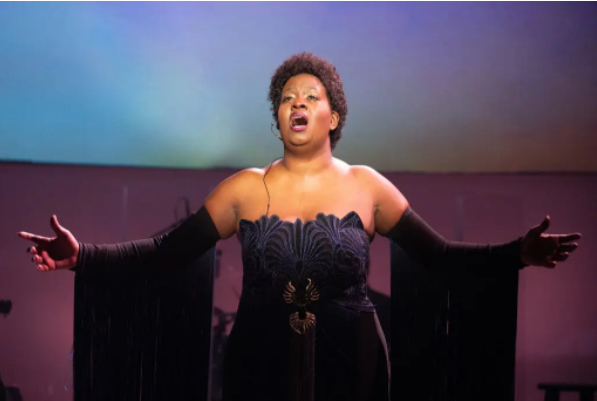
somi kakoma by sara krulwich
‘Dreaming Zenzile’ Review: A Tribute to Mama Africa
The musical is Somi Kakoma’s thank-you note, written across generations, to the South African singer and activist Miriam Makeba.By Alexis Soloski
June 1, 2022If you want to see a performer in full command of her instrument and her powers, take the F train to Second Avenue and walk the few blocks to New York Theater Workshop to savor Somi Kakoma < SOMI (somimusic.com) > in “Dreaming Zenzile,” her tribute to the South African singer and activist Miriam Makeba, born Zenzile Miriam Makeba.
Makeba, a star from the 1960s through her death in 2008, pioneered the form broadly known as world music. Singing in Xhosa, Swahili, Sotho, Zulu and English, Makeba popularized African songwriting among American and European audiences, earning the nickname Mama Africa. Throughout her life, she lent her voice to social justice causes, particularly that of Black South Africans living under apartheid. Onstage, at New York Theater Workshop, in collaboration with the National Black Theater, Kakoma, in a marigold dress, with a voice like a sunrise, plays her through 76 years of her eventful life.
Makeba was a vocal shapeshifter who could triumph in practically any genre — folk, jazz, American songbook, Afropop. Vocally, Kakoma has that chameleonlike quality, too, varying her big, bright voice with husky breaths, vivid ululation and the Xhosa clicks for which Makeba was famous. Her singing seems as effortless as it is varied, as easy as it is virtuosic. “Dreaming Zenzile,” directed by Lileana Blain-Cruz with music direction by Hervé Samb, is best understood and enjoyed as Kakoma’s gift of love and dignity, across generations, from one artist to another.
But as a work of theater, “Dreaming Zenzile” struggles among the competing forms of recital, dream play, memory play and biography. The bare set, by Riccardo Hernández, suggests a concert stage, illuminated by Yi Zhao’s vibrant lights and backed, less helpfully by Hannah Wasileski’s banal projections of waves, flowers and rainbow abstractions. Is this an auditorium or some astral way station? Is it the afterlife? Lacking the style and thematic force that defines Blain-Cruz’s best work, the show feels less like a narrative than a tone poem, which can make time hang heavy in the first half; it takes an hour just to bring young Miriam to her professional debut.
Amplified by a four-person chorus (Aaron Marcellus, Naledi Masilo, Phumzile Sojola and Phindi Wilson) and a four-person band, the music feels electric, often joyful, a sharp shock of pleasure that Marjani Forté-Saunders’s supple, elegant choreography enhances. But the interplay between book passages and Makeba’s songs, which are not subtitled, rarely feels essential. Why these songs, in these moments? By contrast, Kakoma’s emotion-heavy, jazz-inflected songs are too on the button. Really, they’re all button. Those who arrive without a working chronology may feel lost.
Though it touches briefly on some central themes — exile, responsibility — and limns, however elliptically, most of the major life events of its subject, “Dreaming Zenzile” withholds what most of us desire from a work of this kind: a greater understanding of how a performer’s life shapes and impacts her art, the relationship between experience and oeuvre. This desire isn’t necessarily fair or sensible. Sometimes that relationship doesn’t exist. Sometimes it is too oblique to parse. But because “Dreaming Zenzile” too often favors symbol and abstraction, the audience is denied this connection.
Only in its closing moments, which occur shortly before Makeba’s death, does the show achieve a kind of cohesion and vigor. Throughout, Makeba has taken up the burden of activism with sturdiness and poise, freeing her voice in the hope that others might be made free. Finally, she announces the cost.
“Do you know what it is to be the first?” she says, choking on the words. “Do you know the weight of that? The loneliness?”
To ask one woman to stand in for an entire continent was always too great a burden. Mama Africa? It was impossible. That Makeba bore it for so long, and with such grace, is a wonder and a gift. At its best, “Dreaming Zenzile” is a thank-you note, written with deep and abiding gratitude.
Dreaming Zenzile
Through June 26 at New York Theater Workshop, Manhattan; nytw.org. Running time: 2 hours 15 minutes.Dreaming Zenzile
New York Theater Workshop
79 E. Fourth St.
E. Village
212-460-5475
nytw.org
CategoryOff Broadway, MusicalRuntime2 hours 15 minutesCreditsWritten by Somi Kakoma, directed by Lileana Blain-CruzCastSomi Kakoma, Aaron Marcellus, Naledi Masilo, Phumzile Sojola, Phindi Wilson, Kim Onah, Darrell Purcell Jr.PreviewMay 17, 2022OpenedJune 1, 2022ClosingJune 26, 2022Upcoming Shows
Wednesday June 8 7:00 pm
Thursday June 9 7:30 pm
Friday June 10 8:00 pm
Saturday June 11 2:00 pm
Saturday June 11 8:00 pm
This information was last updated on May 27, 2022Model: Somi Kakona
Photographer: Tatenda Chidora
...
THAT WAS THE HONEY HERE IS THE POT
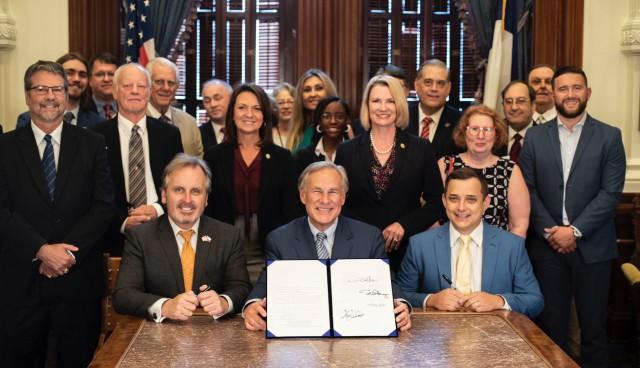
It always amazes me how articles concerning laws, never link to the laws official location online by the legislatures online location. why do I always have to find it?
U.S. Supreme Court blocks Texas law limiting content moderation by social media companies
by: URIEL J. GARCÍA (TEXAS TRIBUNE)Posted: Jun 1, 2022 / 09:01 AM CDT
Updated: Jun 1, 2022 / 09:04 AM CDT
The U.S. Supreme Court on Tuesday blocked a Texas law < Governor announcement: https://gov.texas.gov/news/post/governor-abbott-signs-law-protecting-texans-from-wrongful-social-media-censorship ; First phase in texas legislature: https://capitol.texas.gov/BillLookup/History.aspx?LegSess=871&Bill=HB20 ; second phase in texas legislature: https://capitol.texas.gov/BillLookup/History.aspx?LegSess=872&Bill=HB20 > that prohibits large social media companies, such as Facebook or Twitter, from banning or removing users’ posts based on political viewpoints.
The justices, in a 5-4 vote, granted NetChoice and the Computer & Communications Industry Association’s request to reinstate a block imposed by a federal district judge as the lawsuit makes its way through the courts. The justices who voted to reverse the lower court’s ruling didn’t give a reason for their decision — a standard practice when the court is ruling on emergency applications.
Matt Schruers, president of the Computer & Communications Industry Association, one of the two groups that sued to block the law on claims that it violates companies’ First Amendment rights, celebrated the court’s decision.
“No online platform, website, or newspaper should be directed by government officials to carry certain speech,” he said in a statement. “This has been a key tenet of our democracy for more than 200 years and the Supreme Court has upheld that.”
Passed during a special session last year, House Bill 20 does not provide any specific civil penalties for breaking the law besides allowing users to sue to recuperate their court costs from the company found in violation. The law also empowers the attorney general to pursue violations.
The law would ban platforms with more than 50 million monthly users, such as Facebook, Twitter and YouTube, in the U.S. from removing a user over a “viewpoint” and require them to publicly report information about content removal and account suspensions.
The Legislature passed the measure after outcry from Republicans over perceived anti-conservative bias among major tech companies. That charge grew when Twitter permanently banned former President Donald Trump for inciting violence and purged over 70,000 accounts linked to dangerous conspiracy groups after the deadly Jan. 6 insurrection attack of the U.S. Capitol.
Supporters of the law say it ensures that users’ political views go uncensored. State Rep. Briscoe Cain, R-Deer Park — who authored the bill — compared tech companies to “common carriers” like phone companies or cable providers, which are barred from customer discrimination.
Big social media company executives have denied removing content or blocking users based on their viewpoints, though they do have policies prohibiting explicitly graphic content, bullying, hate speech and dangerous misinformation. The two trade groups that challenged the Texas law argued in their lawsuit that HB 20 forces social-media platforms “to disseminate, for example, pro-Nazi speech, terrorist propaganda, foreign government disinformation, and medical misinformation.”
“Texas’s HB 20 is a constitutional trainwreck—or, as the district court put it, an example of ‘burning the house to roast the pig,’” Chris Marchese, counsel at NetChoice, said in a statement on Tuesday. “We are relieved that the First Amendment, open internet, and the users who rely on it remain protected from Texas’s unconstitutional overreach.”
Texas Attorney General Ken Paxton has defended the law, saying it doesn’t violate the First Amendment because social media platforms are “gatekeepers of a digital modern public square.” He has also argued that social media platforms “are the twenty-first century descendants of telegraph and telephone companies.” And he has claimed that the government should be allowed to regulate the companies as “common carriers,” which are private or public companies that transport goods or people and are barred by government regulators from discriminating against customers.
The two industry trade groups that represent companies such as Google and Twitter sued to block the law last fall. In December, a federal district court judge ruled in favor of the groups and prevented the law from going into effect, reasoning that the First Amendment protects a company’s right to moderate content and calling parts of the law “prohibitively vague.”
As a result, Paxton appealed the district judge’s decision to the 5th Circuit Court of Appeals, which reinstated the law.
Three conservative justices, Samuel A. Alito Jr., Clarence Thomas and Neil M. Gorsuch, said in a dissent that they would have let Texas’ law stand for now. Justice Elena Kagan, a liberal, said she would have also let the order stand but didn’t provide a reason.
Alito wrote in the dissent that it is “not at all obvious how our existing precedents, which predate the age of the internet, should apply to large social media companies.” Still, he wrote, the case is “of great importance” and the Supreme Court would have to review the arguments at some point.
“Social media platforms have transformed the way people communicate with each other and obtain news,” he wrote. “At issue is a ground-breaking Texas law that addresses the power of dominant social media corporations to shape public discussion of the important issues of the day.”
-
Title: Drew of Dislyte, a panoramic moment of tea
Artist: Richard Murraypanoramic version embed
Color version, this version was made to be viewed as a panorama
https://www.deviantart.com/hddeviant/art/Drew-of-Dislyte-a-panoramic-moment-of-tea-918514665Panoramic version- link, but you should be able to see above
https://www.flickr.com/photos/monsignor_klaatu/52128652929/in/dateposted-public/Black and White version
https://www.deviantart.com/hddeviant/art/Drew-of-Dislyte-a-panoramic-moment-of-tea-BW-918514950Invitational
https://www.deviantart.com/team/journal/Delight-with-Dislyte-Celebration-Contest-913761648Variations of dislyte art
https://www.deviantart.com/tag/DislyteDAEquirectangular album- to see process of how I got to the final result
https://www.flickr.com/photos/monsignor_klaatu/albums/72177720299568998
-
IF you have a black child and want some great fantasy photography check out
-
It is a video
MY THOUGHTS AS I WATCHED
everyone knows that the civil rights act was initially for the black community and became extended to all non white males, and with the immigration act the "flooding" was applied. It shouldn't be a secret.
But the sister's , the immigration lawyers, point is true. The south carolina guy was rude to her. Yes, illegal immigrants are used to do two jobs: block blacks , descended of enslaved, from a job plus also have a person willing to get a lower wage, who is most illegal immigrants.
The lazy narrative is from white media. But, the USA is why countries around humanity are poor, or dysfunctional. From eastern europe to south east asia to west africa to the entirety of south america, the hand of the USA brews dysfunctional poor countries all throughout humanity. Thus drives their populaces desire to immigrate and no country accepts immigration like the usa. It is a perfect circle.
The problem I have with the narrator is she is missing the point. She is focusing on the battle for jobs when the true issue is ownership. if Black people owned more then they will not have a problem with wages, cause more blacks are employed by... blacks. If I own a movie studio , the scale of Disney, and I mostly hire black people throughout the labor sectors then that actually helps black people.
Kinda Velloza is correct. Immigrants still pay taxes.
The south carolina guy really doesn't like kinda velloza... it stings, I wonder if they know each other or met each other on the talk circuit before cause wow!
She is black from guyana, you are black from south carolina, please find a room and have hot sex.
To guyana, guyana recently found oil! but the government of guyana isn't some socialist, egalitarian government. It is like Gabon, or Angola, two other recent oil states that , yeah, black oil barons, but these countries don't have governments built on communalization. These governments are tribal in nature. full of clans who place themselves in halls of power.
Of course, I have travelled to various places. I know for certain that many tribes in the village exist.
I love how Tammi Mac doesn't use the word whites. I know this is fox. I am glad Tariq used that word whites.
One point is, this show need to be on TVOne. I am not saying that I want the sister to lose her show, but part of the problem with black people is we have to use black owned media entities more. Even though the scaling of black media is too small.
The issue of how Black immigrants from the caribbean or africa view the usa is complex. As people from fiscal poor countries, they adore the possibility in the usa. As black people, they respect the Black populace in the USA. As black people in a country controlled by white power, they know of the phenotypical bias but it is set in stone and has gone on for so long it isn't viewed as challengeable.
Gregg Dixon is historically short. Black leaders circa 1860s , in particular the Black church, supported integration. They didn't fight for ownership. They didn't fight for all the things Tariq or Marcel suggested.
The problem is complicated for the Black populace in the USA.
I love how Tammi Mac admitted Black americans seperate themselves when they get those PHd's and all the panelist laughed:) which is telling.
I love how the freddi guy wasn't listening and blamed the biden administration for the trump, amazing.
Kinda Velloza's point is correct about immigration law. The rule of law is supposed to be a factor of peace. if the rule of law doesn't matter to those who are being influenced by the USA, which is illegal immigrants being detained then, it is a slippery slop.
Yes, immigrants in latin america, can not walk to spain. And brasil... the flavelas in brasil isn't an upgrade to some one from central america.
The host forgot the lawyer came from guyana , not ghana.
People come to the USA because most governments in humanity are controlled by clans. If you take out, China/Russia/USA/some western european governments, most other governments are run by clans.
The blood of the murdered native american by whites is actually the foundation of the USA, not the labor of blacks or the domination of whites or the dreams of other immigrants whether unwilling or willing.
The problem in this show, like many of these talk shows, is the points don't lead to solutions.
Gregg Dixon , who wants to be an elected official, but is part of a party of governance that he himself says is opposed to his position. So what is the solution. Run independent or start your own party. He loves history. History proves the usa at one time had only one party, then became two and throughout its history has added more and more with varying success.
Tariq Nasheed is clearly a DOSer, or I will use his term Foundational Black. But he is an artist, like myself. I am not knocking down being an artists. But, the artists with the most money in modernity, don't control the water, energy, food, construction. Foundational Black Americans need infrastructure support. As an artists, he can only get money for his work. Unless he is going to spend all the money he makes on infrastrcture needs, at best he is like myself at this moment, a charlatan. A pulpiter, which I can't stand, but is the truth.
Kinda Velloza says the non immigrant Black populace has to engage more functionally to the USA. And let the immigrant community be. In her mind, Black unity is lose. She accepts the tribes in the village motif I usually use. All she wants is for the various Black tribes to stop attacking each other.
Samuel Q Elira is a candidate as well, he wants to make things better. He doesn't have any answers. But he thinks Black people need to unite cross tribes in the village. As an elected official to prince george's , a majority black county I think. Maybe he can usher great inter black communication and effort in that county.
I wish the host would had focused on what these people wanted and how to get there. I find most of these shows, not merely black social commentary but white or women or asian or latino or anybody, social commentary shows are focused on cross arguments, when I think statin solutions is a better use of time.
I love how Kinda got the last word on the south carolina guy:) hilarious:)
I laughed a lot, lovely. I love banter.
-

MY COMMENT ON THE ORIGINAL FORUM POST
Many of these social commentary shows, from like it is with gil noble to le grand librarie in france to this have one , in my view, dysfunctional structure. They don't focus on solving the guests problems with their strategies.
Gregg Dixon- is trying to be an elected official, whose slogan is to improve the black descended of enslaved community will improve the entirety of the usa. thus he wants a country whose populace is not mostly descended of enslaved people to support his agenda and use the black populace of south carolina as a seat to make legislative strides to said agenda. But his strategy has flaws. First, he himself admits that the donkeys don't serve his agenda. so he is part of a party of governance against his agenda, by his own words, but has in the other major party a clear opponent to his agenda. He seems to know history somewhat, so he must know the usa first had one party then became two, andrew jackson, then became two major with minors till today. So make a minor party in south carolina's black community is the solution to his strategies flaws.
Tariq Nasheed- is an artist. He makes money by people buying his art. But until he makes enough money to financially support Foundational Black Americans, he is merely a preacherman. He is asking a people he stated are historically abused to finance his art work and be inspired by it, but doesn't suggest what he will do if he achieved millions or more dollars for his books. I assume it will be to write another book.
Kinda Velloza - is an immigration lawyer whose parents were Black immigrants from Guyana. A country that recently became an oil state and whose government is run by a set of clans, like most nouveau oil state governments of black countries <ala Gabon or Angola> in humanity. Her point from a very fortunate position is Black DOSers need to fight their fight and not attack recent Black immigrants. She admitted her personal tale, which I have heard from many others who are Black but recent immigrant as well. And she admitted it is not up to recent Black immigrants to concern themselves with DOSers fight. so, she offers a strategy that actually has function. Black DOSers get their tribe together, recognize many more Black tribes exists in the usa <jamaican/nigerian/guyanan/indian/ and more>, stop blaming recent Black immigrants from wherever or demanding recent Black immigrants from wherever take up your fight. And Black tribes need to stop hurting each other. I said in this very community similar. Each tribe has to figure out how to grow and each tribe has different situations. But they can all do it. I will add, lets be better than booker t washington/frederick douglass/web dubois/marcus garvey whose time and movements collided too much. I think douglass and Dubois the younger were particularly negative, whereas Washington + Garvey simply failed to reach where they needed, but the legacy of their movements is in memory.
Samuel Q Elira - says he wants to be an elected official of prince george's county which is a black county by majority populace. Financially above average,a la the black rich. so his goal of communal cohesion in prince george's county's black populace is probably achievable absent any true effort by him. For he didn't suggest any ideas. All he suggested was pleas of positivity or unity. Which are not negatives but are not plans. And prince george's country when DC United , an MLS sports team, had a black majority owner, disproved of a stadium in that county. so, prince george's county has black people in it with money but not necessarily the greatest imagination when it comes to black wealth building.
My extended comment
https://aalbc.com/tc/profile/6477-richardmurray/?status=1941&type=status
IN AMENDMENT
SHows like this need to be on TVOne which is black owned. Why doesn't black enterprise have a show on TVOne for this or Sharpton's action network. I am not knocking the sister, nor do I want fox to cancel her show. Fox black is an attempt by Fox to be more relavant as the murdoch clan broke up the fox media giant into three much weaker pieces, one piece sold to disney. so... I get it, but Black ownership has to be first in the usa, if war or weapons are not be used.
IN AMENDMENT AGAIN- for a little laugh
For the record, Dixon wants to lay with Velloza. All men have four women we infatuate with. Ones we love, ones we lust, ones we like, and ones we can't stand. Many black men as boys fantasized about ororo munroe with the iman accent , drawn all inhuman , and reply to her beckoning, I'm comin baby. .. anyway... The way he kept blocking her speech, it is clear he thinks on her. he literally picked on her. I wish she would had asked him to lick her pussy. I wonder if he would had paused if she did that or had an immediate response, gardless her ring.
-

BLACK PEOPLE IN THE USA ARE NOT IGNORANT,
their leaders utilize a strategy that demands of them as individuals to accept an unfair scenario for the sake of peace
The following doesn't relate to Black people anywhere but in the USA...
Black folks in the USA have always doubted the elephants or the donkeys, the strategy is to make either of them better from the inside. The problem is that strategy while non violent + non confrontational to whites requires a very long time to work. And black leaders have never had the courage to admit to the larger black populace that they must learn to accept abuses on the way. The purpose of the strategy is to be nonviolent or non confrontational to whites and within the black community to make either party stronger and thus mold the usa into the country frederick douglass dreamed it would be.
Yes, circa 1965 most Black people had lived a life of fear , remember enslavement wasn't a joke it wasn't merely unpaid labor it was total true domination. So most blacks feared whites in a deep personal way. The majority of black leaders at that time, who were not modern style entertainers, were all advocates and most formerly enslaved. So they al were used to patronage from white people. Thus, between the honest fear plus hatred the majority of black people had side the infatuation with a positive link to whites that most black leaders were addicted to. You get the strategy of working in white institutions: the military <from the army to the local city law enforcer, instead of promoting a black security/military force>, the two primary parties of governance <I call the donkeys or elephants, focusing on them not making a black party> , white owned firms <ala being ceo's of firms over owning their own>.
The end goal is the idea that all peoples in the usa are empowered if all the individuals in each community/race/tribe/group/populace/rank/order/gender/range/language/age/religion or other grouping term place position in what already exist over making distinct alternatives.
Native Americans don't need their own military even though they have been tormented by the US military if they join the us military and over time the US military serves them.
Black Americans don't need to own their own fiscal firms even though they were enslaved to white owned financial operations if they become employed to these firms and over time the firms serves them.
Women don't need their own governments even though they have been dominated and controlled by men in the US government if they join the US governments and over time the government will serve them.
The strategy is individuals push into spaces forcing their makeup to be multiracial, while rejecting their own tribal connections which rejects biases in the future. It is a non violent or non confrontational strategy.
The problem is the time it takes for individuals to force a multiracial functionality into monoracial institutions to succeed will be by default longer than anything through violence <war ala most countries history/anarchism/terrorism ala the irish> or tribalism<the nation of islam or the kkk, neither of which represents black or white people but both suggest they do > or communalism <ala the back to africa or booker t washington's movement>
Most people get frustrated and most leaders are unable for various reasons to admit to the masses, the one by one of individuals changing institutions will take a very long time and be full of failures/rejections/defeats/pains for most of the people being led.
This is why the strong people lead themselves tactic gets mentioned alot. The idea is, if more individuals accept the strategy and what it means. That individuals have to get through the hurdles without help and are not to help others after they do. It will make it faster. But, that is the weakness in the strategy. Humans are by default of the monkey tribe, and monkeys are by default communal. The group always takes precedence over individualism.
-
-
-
-
ProfD < ProfD - AALBC.com’s Discussion Forums > truth...
truth...
partial , before the secession in the french-british war <called french - indian usually> and after in the war of 1812 you can see the british were willing to use natives or blacks to counter whites in the usa. Which to be blunt, ProfD is strategically a different situation. The british are not good, they were an empire, all empires are based on power, not goodness. but, all empires are willing to make arrangement in their fringes, ala the roman empire which in germania created the seeds for the vandals later. The roman empire didn't love the vandals, but the vandals served a function. To me , your making too light of the strategic need of the british empire to have a minority in its favor , in the same way the usa supports israel in the arab world. Israel is given constant support, this is not cause most whites in the usa, are in love with white jews, this is cause they serve a function.
fair enough.. let goodness be where it is
fair enough... I think leaders have levels of quality
and same
I think desire is the most important factor. I have never believed anyone is as ignorant as they seem
Good point, I want to add, dispirited people are the farthest, beyond the mind is the heart. When the heart quits that is stronger than the mind's distance.
I think racism is human and thus as long as humans exists racism will, the question is how we humans manage it. It doesn't have to be managed to obsolescence or cruelty
Cynique < Cynique - AALBC.com’s Discussion Forums > your right, add the native american. And beyond american, racism is as human as love or hate or selflessness, all are human. Nothing to dispute. Those who complain the most want something in their favor. Black people, native americans, women... have a lot of complaints. Nothing to dispute. The only thing is certain, is sooner or later, everybody gets their time at the top of the pyramid. The question is, will your group be at the top when you are alive:)
Yeah, justice is abstract because most think justice is about a universal truth or a universal balance, but it itsn't. Justice is determined by that which is in power at the time. Those in power changes and everyone can't be in power at the same time.
Yeah , it is boring isn't it. But as I have opined alot recently in this forum. If you are bored, try different things. The black populace in the usa has done nearly everything peacefully possible to live integrated with whites. Very few things black people haven't done to make it better without violence. so...
thank you for coming out your corner:)
-

Pioneer1 < Pioneer1 - AALBC.com’s Discussion Forums >
In my mind you posit a great question. The IRA was only a few hundred people. So from a historical point of view, I see your point. But in my mind, I wonder. The black community in the usa, like the native american , is in a very unique position. Not in terms of being abused as a minority but in the scale of abuse in the country in question. White jews have always been abused in europe but never to the scale. Even during the nazi era in germany, some white jews were given lenience or ease in a way never given to anyone black, or native american, in similar moments in the usa.
I ponder the question you posit. you didn't ask it, but it is in there.
Your correct and thus maybe one of the problems. Again, when humans talk of a better tomorrow anywhere, they rarely ask about that which has not occurred. thus my point about a black party of governance. I don't know the future. but if we look at what hasn't happened, what hasn't occurred, maybe that can break the
 boring cycles. Maybe the black populace in the usa has allowed too much individualism in itself. Is the white populace in control in the usa? 100% . I am not suggesting that black people are in control. I am not suggesting anything is easy. but maybe that needs to happen internally in the black populace in the usa. And I am not suggesting most black people in the usa today are onboard with anything like what I suggests as new things to do. But, maybe we go in circles in the usa cause we are doing the same things.
boring cycles. Maybe the black populace in the usa has allowed too much individualism in itself. Is the white populace in control in the usa? 100% . I am not suggesting that black people are in control. I am not suggesting anything is easy. but maybe that needs to happen internally in the black populace in the usa. And I am not suggesting most black people in the usa today are onboard with anything like what I suggests as new things to do. But, maybe we go in circles in the usa cause we are doing the same things.
and your right, my parents were there and didn't shy away from telling me the truth as a child... I can even argue maybe too many black adults lie to black children about the past. again, another thing we don't do. So many of our forebears didn't speak about the past? was that helpful? perhaps. I am not trying to suggest I have all the answers. but I argue, black people maybe need to tell our children some hard truths early on. stop expecting them to learn them and instead tell them . Cause I am certain most black parents at least, in certain communities in nyc, are very negligent in speaking about our phenotypical history with whites. I am not talking about telling black children to do good, or to be wary of law enforcement. I mean to get to the nitty gritty of what community did what to make the system of things we live in today...
I will like to add, black entertainers in the usa have another issue. As entertainers they all to often live by salary to whites with money who govern the system. sequentially, black entertainers are simply not in a strong enough space in their individual lives to risk communicating to black betterment without concern to white backlash. I concur that many entertainers in their actions show a lack of knowledge to the black populace, or black culture or black history. But I want to add, most black entertainers live with a mask on. And make their individual profit in the least secure financial place, which is the arts.
I concur to your point but we black people tend to forget, real estate/manufacturing/energy sector, these industries are not dominated by whites by accident. these industries are where real power resides and as our forebears were enslaved, and our leaders from the end of complete slavery to today haven't led us to make our own space in the usa, we have a long way to go to own/control the kind of resources where a black person can speak without reprimand by whites. We need more than entertainers to be the leaders but as a nonviolent peoples and in my opinion, black people in the usa are the most nonviolent behind the native american, entertainment is one of the few places where we can grow. IT will take alot of time for us to be in control of such industries to speak out in the usa.
-
-
Was johnny depp Amber HEard trial the biggest media event of the last week? 330 million views. That is a lot. That is real good money.
All these big media marriages, AnotherOneBitesTheDust330 millions viewers to Johnny Depp AMber Heard trial
https://lawandcrime.com/live-trials/live-trials-current/depp-v-heard/lawcrime-network-hits-record-330-million-viewers-on-depp-v-heard-coverage/
Law and crime is owned by a man named Dan Abrams
https://en.wikipedia.org/wiki/Dan_Abrams#Law&Crime
It is available over the top, meaning pure internet as also cable services.
https://en.wikipedia.org/wiki/Over-the-top_media_service
I can't believe the following but supposedly, justice for johnny depp had 19.6 billion views, that can't be right?
The following post is amazing for the number of women who posted for Depp:) wow
https://news.yahoo.com/most-disturbing-surprising-celebrity-reactions-213257200.html
I have a laugh penultimately
https://www.instagram.com/p/CeS08Jpl9_j/
I end with the sister who started #MeToo
https://twitter.com/TaranaBurke/status/1532329149678878720 -

Title: Night Thrasher
Artist: Shawn Alleyne < Pyroglyphics Studio > OR < https://www.deviantart.com/pyroglyphics1 >
Prior post
https://aalbc.com/tc/profile/6477-richardmurray/?status=1858&type=status
Prior entries
https://aalbc.com/tc/search/?&q=Shawn Alleyne&type=core_statuses_status&quick=1&search_and_or=or&sortby=relevancy -

Title: Have a Pleasant Weekend
Artist: GDBee < https://gdbee.store/ >
prior entry
https://aalbc.com/tc/profile/6477-richardmurray/?status=1934&type=status
GDBee entries
https://aalbc.com/tc/search/?q=gdbee&quick=1&type=core_statuses_status -
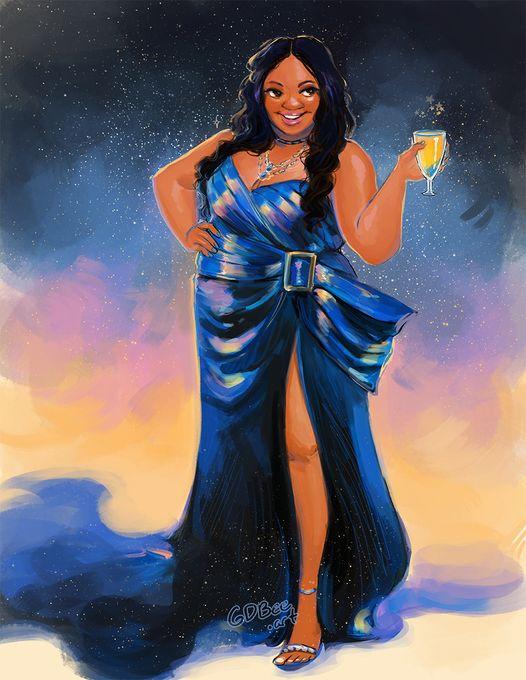
Title: Lizzo Appreciation
Artist: GDBee < https://gdbee.store/ >
prior entry
https://aalbc.com/tc/profile/6477-richardmurray/?status=1933&type=status
GDBee entries
https://aalbc.com/tc/search/?q=gdbee&quick=1&type=core_statuses_status



